If you are looking to be involved in agriculture, you may be looking for a livestock breeder. A livestock breeder is an individual who breeds animals for sale to either gain a product from the animal or use the animal itself for a service.
There are different livestock breeders available from dog breeders to bovine breeders. Bovine breeding is one of the most financially advantageous livestock to raise. This can earn you a decent salary if you are willing to put in the time and effort.
Some families will choose to start small as dog breeders and are still able to make some money. The average salary for a livestock breeder is $43,930. These are great ways to become involved in livestock breeding.
Other articles you would like: 8 Best British Shorthair Breeders in The United States! (2023) and 8 Best Chinchilla Breeders in The United States! (2023)
Bovine Breeders
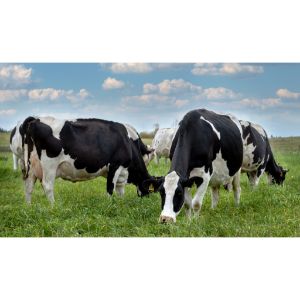
Another area of livestock breeding that is very popular is raising bovine or cattle. This works well for families with large amounts of land and can put in the time to frontload preparing care of these large animals.
While bovine breeding can work to earn someone a livable salary, they are costly to maintain with food, fencing, branding, and transporting. Because of this, you do need to have extra money to spend before deciding to invest in a bovine.
Cattle are commonly referred to as bovine as part of the Bovidae family. Other animals within that same family are bison, goats, and antelope. They have similarities in some bodily structures and are options for livestock breeding.
Best Livestock Breeders in the US
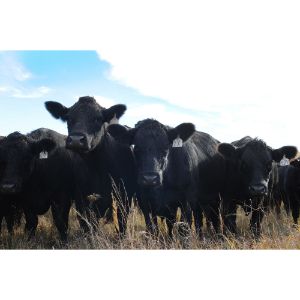
There are livestock breeders all over the United States. To search for an animal breeder can be exhausting, so here we have compiled a list of the best livestock breeders in the United States. These are not in any particular order. This is more to serve as an overview of some of the nation’s leading livestock breeders.
1. Vom Haus Hall (Cook Farm Kennels)

This dog breeder is located in North Carolina and has gained a reputation for being a trustworthy livestock breeder to do business with. They specialize in three dog breeds: German Shepherds, Belgian Malinois, and Dutch Shepherds.
Their animals have consistently been in good health and come with a guarantee from the owner to further verify their condition. Their dog breeding business also has an A+ rating from the Better Business Bureau according to their website.
Vom Haus Hall Details:
- Location: 7823 NC-150, Browns Summit, NC 27214
- Phone Number: (336) 279-3134
- Email: cookfarmkennels@gmail.com
- Website: Vom Haus Hall
2. Dove Hill Labradors
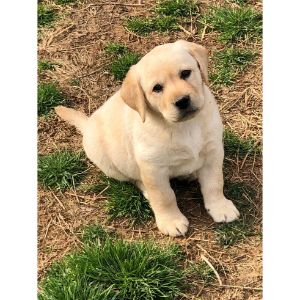
This next livestock breeder is another dog breeder specializing in Labradors. They commit to providing premium puppies and adult dogs, even listing specific conditions that their animals do not possess.
The owner received her Bachelor of Science in Animal Science because she invested in knowing more about the animals to serve them and preserve the natural qualities of the Labradors that they raise. This animal breeder takes pride in their work.
Dove Hill Labradors Details:
- Location: Culpeper, VA
- Phone Number: (540) 825-4358
- Email: dovehillkennel@gmail.com
- Website: Dove Hill Labradors
3. Arctic Akitas
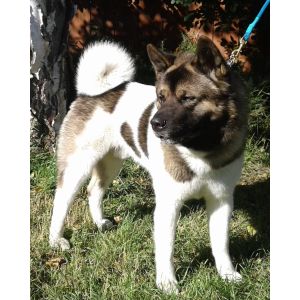
Arctic Akitas is a dog breeder based in Alaska. A noticeable trait about this livestock breeder is just how much care is placed on every single dog under their guardianship. They make sure the animals are healthy and even feed them premium dog food that will contain real ingredients such as meat and bones.
This dog breeder is invested in their dog’s care even after they have left them. They will screen potential families to make sure that the family and the dog are a good fit, even insisting on refunding a purchase and taking a sold dog back if the environment does not feel safe for the animal.
Arctic Akitas Details:
- Location: Fairbanks, Alaska USA
- Phone Number: (907) 978-3158
- Email: akitainulady@gmail.com
- Website: Arctic Akitas
4. Boulder Puppies

Bringing our list back to dog breeders, Boulder Puppies has been ranked among the 50 best in the entire United States. This Colorado-based business dedicated itself to ensuring that its dogs are developmentally ready for whatever home they may end up in beyond their walls. Their devoted time with the animals promotes acclimation with humans faster.
This livestock breeder offers a 2-year guarantee. That means you can return the puppy any time during those two years if there appears to be an issue or if you decide this is not a good fit for your family.
Boulder Puppies Details:
- Location: Colorado
- Phone Number: (303) 908-5824
- Email: Boulderpuppies@gmail.com
- Website: Boulder Puppies
5. Country Acres Puppies
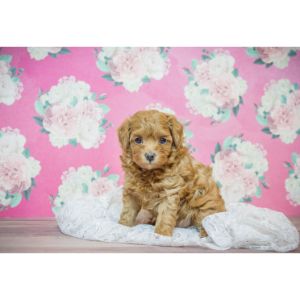
Country Acres Puppies originated and is located in Illinois. They have a unique offering of dog breeds including Maltese, Yorkies, Toy Red Poodles, Maltipoo, Morkie, Morkiepoo, and mini Goldendoodle puppies.
Their love for small dog breeds speaks for itself in their over 20 years of experience in the dog business. Some of their breeds raised are unique and not widely marketed. They have crossbred different breeds to present a dog that possesses the good qualities of several dogs.
This livestock breeder lets the customer see what puppies are about to be born and claimed on their website. Another unique feature about this particular business is that its sales are not limited to the immediate area.
They will sell to you even if you are not living in their area and can fly with your chosen puppy on the plane for a price. Of course, you must have seen the puppies in person first before that transaction can occur, but this is just a step that sets this group apart from the rest.
Country Acres Puppies Details:
- Location: 4216 N 2500 E, Fairbury, IL, United States, Illinois
- Phone Number: (815) 419-5245
- Email: countryacrespups@gmail.com
- Website: Country Acres Puppies
6. Exact Classic Bulldogs
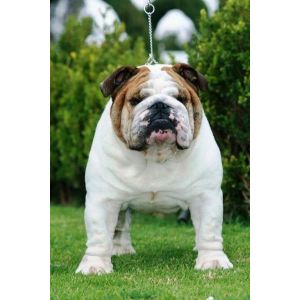
This next livestock breeder puts their animals first. Exact Classic Bulldogs is a member of the Bulldog Club of America Hall of Fame.
They have repeatedly produced high-performing dogs that have excelled at championships. AKC standards are a strict guideline for this animal breeder to ensure that you are getting consistent quality every time.
They are even selective in who they will sell to because they want to ensure there is a safe home for their bulldog before allowing them to leave the house. Livestock breeders who advocate for their animals show to be trustworthy in their products.
This Indiana-based business specifically denies business to such places as fraternity houses or pet stores. The care of the pet is important at Exact Classic Bulldogs.
Exact Classic Bulldogs Details:
- Location: Indiana, Auburn
- Phone Number: (260) 414-0184
- Email: info@exactclassicbulldogs.com
- Website: Exact Classic Bulldogs
7. Daynakin Great Danes LLC
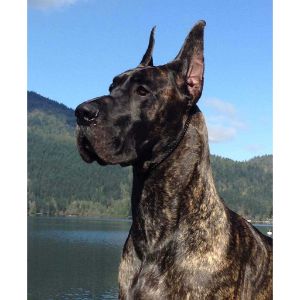
Are you looking for a livestock breeder who triple-checks that they are delivering high-quality animals? Daynakin Great Danes in Washington runs several tests over each of the dogs that they plan to sell to make sure that there are no defects or causes for concern.
They work to remediate any issues before they arise. They are a member of 5 prestigious Great Dane clubs and have been recognized as a meritable breeder by AKC.
Their dogs are specifically bred with the intention of shows and competitions which is why they do such thorough testing. Along with selling the Great Danes themselves, this small business will also offer classes for anyone seeking to be a better caregiver to a dog.
Daynakin Great Danes LLC Details:
- Location: 7645 Woodland Rd, Ferndale, WA 98248, United States
- Phone Number: (360) 380-1356
- Email: daynakin@aol.com
- Website: Daynakin Great Danes
8. Upstate German Shepherds

Upstate German Shepherds have ranked among the top dog breeders in New York. The owners display an impressive 60 years of experience working with these dogs and have a wealth of knowledge to offer the buyer when it is time to give the animal a new home.
This livestock breeder understands the importance of exercise and the outdoors for healthy well-being as a dog. They make sure the animals have wide spaces to roam and have dedicated themselves to nurturing these German Shepherds to grow them into animals ready for any home.
Upstate German Shepherds Details:
- Location: Canisteo, NY 14823, USA
- Phone Number: (315) 406-3783
- Email: donaldgaryspear@gmail.com
- Website: Upstate German Shepherds
9. Darnall Ranch, Inc.
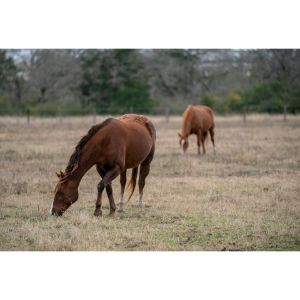
This next livestock breeder is an established bovine breeder whose family has devoted over 124 years to this business. This bovine breeder has expanded operations from the 150 heads of cattle that they started with to well past 1,700 cows. An even more impressive detail about this ranch was it winning the BIF award in 2013.
Beef Improvement Federation is a reputable organization in the bovine community. To win an award from the organization and earn recognition speaks volumes about the quality of work delivered at your operation consistently. The Beef Improvement Federation seeks out the ranches and individuals who have worked tirelessly and dedicated long hours for the cause of quality.
Darnall Ranch Details:
- Location: 3071 Co Rd 67, Harrisburg, NE 69345, United State
- Phone Number: (308) 783-2048
- Email: darnall@vistabeam.com
- Website: Darnall Ranch
10. Bradley 3 Ranch
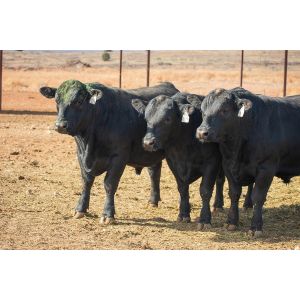
This Texas-based cattle ranch is leading the way for other livestock breeders. Almost 500 of their cows are registered, certifying that they are purebred. They have an incredible track record of maintaining a thriving Angus herd for over 50 years despite the early challenges.
Bradley 3 Ranch also started its own meat company that offered premium meats to the public from its top-of-the-line cattle. Because of the shift in breeding cattle for consumption, they focused more on building muscle in their cows. This has allowed them to sell meat to the public that is better and more robust than other competitor cattle meat on the market.
Bradley 3 Ranch Details:
- Location: Texas
- Phone Number: (806) 888-1062
- Email: pbd.innovation@gmail.com
- Website: Bradley 3 Ranch
Conclusion For “Best Livestock Breeders in The US”
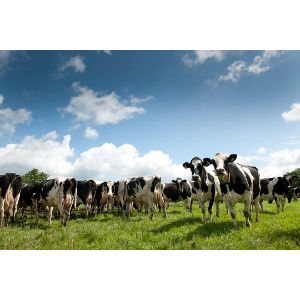
The principles of a good livestock breeder still hold no matter which type of animal you are looking to purchase. You want to make sure they are reputable and can deliver proof of what they are claiming. You need to see what type of environment the animals are in to ensure this animal breeder is legitimate.
You have to put in the work to establish your business, but this could very well be a way to supplement your salary or even replace it. Hopefully, with our list, you can narrow down your search for the best livestock breeders in the United States to find a breeder near you.
You will also like:
- Best Russian Blue Cat Breeders in the United States
- Best Ferret Breeders in the United States
- The Best Animal Breeding Associations
For more information about Animal Breeding, check out the video below:
Maybe you have wanted a pet for a long time — but you don’t have a lot of space in your cramped studio apartment. If a dog is too big to share your tiny NYC apartment, or your parents won’t let you have a cat, what lovable and cuddly pet should you choose? If that’s the case, why not choose a chinchilla from any of the best chinchilla breeders in the United States!
This small and adorable animal is a furry and cute animal that is native to Northern Chile. Today, chinchillas are a common pet that is known for their extremely soft coat and high demand all over the world.
Like common guinea pigs, hamsters, and porcupines, chinchillas resemble many other lovable rodents you can find in pet shops. However, this tiny animal has quintessential short and round ears, large eyes, and very bushy tails. Plus, they come in various colors, like dark gray, blue-gray, white, and black!
Other articles you would like: Russian Blue Cat Breeders in the United States and Ferret Breeders in the United States
Tips for Taking Care of Chinchillas
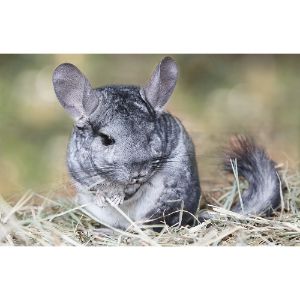
Before you browse the best chinchilla breeders in the United States, you need to know how to take care of this incredible animal. Once you find the perfect chinchilla breeder to buy a healthy and happy chinchilla, there are a few care tips to keep in mind:
- Keep the cage well ventilated and dry
- Keep the cage in cool temperatures, up to 70 degrees Fahrenheit
- If you have more than one chinchilla, keep them in separate cages
- Feed chinchillas food pellets, hay, and dried nuts from pet stores
- Bathe your chinchilla once per week (dust baths)
Once you are prepared to take care of your beloved pet, it is time to shop around from reputable chinchilla breeders to ensure your future household animal is well taken care of, happy, and healthy.
Future owners should read online to find reputable “chinnie” breeders that raise happy, healthy, and sociable animals suitable for apartments, rooms, and family homes. By reading reviews online and ensuring the breeders are knowledgeable and experts in the industry, future owners can purchase a chinchilla with a long lifespan.
It doesn’t matter if you are looking for the best chinchilla breeder in Chicago or located on the West Coast — there are dozens of reputable options around the nation! Let’s check out the top eight chinchilla breeders in the United States for your first pet.
1. DJ’s Chinchilla’s
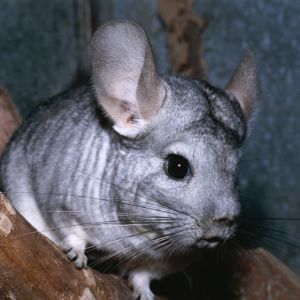
Located in California, this reputable chinchilla breeder is well-known across the nation. This breeder sells different colors of chinchillas, perfect for owners who want a specially-colored chinchilla (ex: bright white or even violet!) Although this breeder only serves the local Riverside area, it is well worth heading to California to browse their extensive selection.
Future owners can rest assured they are using a reputable source to buy their chinchillas, as this breeder has been in the industry for almost two decades. Browse the website to contact them directly, ask questions, and see common FAQs for new chinchillas owners. Plus, they offer a free consultation — putting your mind at ease before you even hand over any cash!
DJ’s Chinchilla’s Details:
- Location: California
- Phone Number: (951) 776-2882
- Email: djschinchillas@aol.com
- Website: DJ’s Chinchilla’s
2. Chinchilla Chateau
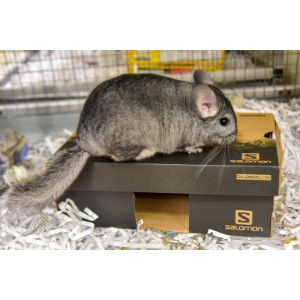
If you are located in California, you’re in luck! This is another California-based chinchilla breeder known for the owner’s extensive knowledge of these adorable creatures. The owner, Sumiko, has a college degree in Biological Sciences, helping answer all of your care questions about your future pet.
Sumiko is the director of the Empress Chinchilla Breeders Cooperative, showing her proficiency in the industry and putting all buyers’ minds at ease. Plus, her expertise ensures she only chooses the most easy-going and well-tempered chinchillas to contain in her breeding sanctuary.
For those interested in adopting a chinchilla from this location, check out their online website to see the current creatures for sale!
Chinchilla Chateau Details:
- Location: Manteca, CA, United States, California
- Phone Number: (209) 679-4736
- Email: chinchillachateau@gmail.com
- Website: Chinchilla Chateau
3. Cuddlebug Chinchillas
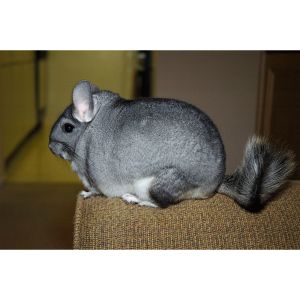
Moving away from California, Cuddlebug Chinchillas in Colorado is another breeder who is a part of the empress Chinchilla Breeders’ Cooperative. This reputable breeder is one of the best in their state — and for good reason!
This family-run business aims to produce only high-end chinchillas (also known as “chinese”) by breeding these animals to help their temperament, lifespan, and personality. The mom and son who own this business pride themselves on helping the chinchilla’s quality of life, not focusing on making monetary gain from sales.
We love this breeder for those who want a chinchilla who has been raised with great attention to detail. If you are interested in adopting here, you will have to go on a nice road trip to this scenic part of colorado!
Cuddlebug Chinchillas Details:
- Location: Colorado
- Phone Number: (720) 460-1738
- Email: cornellia@cuddlebugchinchillas.com
- Website: Cuddlebug Chinchillas
4. Sunshine Chinchillas
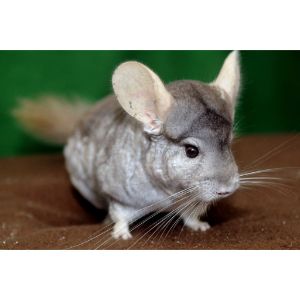
Heading to the East Coast of the United States, Sunshine Chinchillas in Florida is well known for their large selection of colorful chinchillas, ranging from gray, violet, beige, and white animals! Plus, this trustworthy breeder is a member of the Mutation Chinchilla Breeders Association, an internal network for breeders that shows proficiency in the industry.
Before heading here, check out the pricing structure — Sunshine prices their chinchillas based on color, with the normal gray color starting at $200 and more unique colors, like violet, nearly double that price. If you are in the market for a luxury chinchilla, you can expect to pay a few thousand dollars for a curly-haired creature.
Plus, we love how Sunshine offers rescue chinchillas for those who want to save an animal without spending a fortune!
Sunshine Chinchillas Details:
- Location: Central Florida
- Email: Sunshinechins@live.com
- Website: Sunshine Chinchillas
5. Hawaii Chinchillas
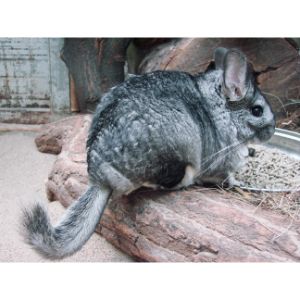
Everyone wants to go to Hawaii for a vacation — and now you have a great reason to fly here!
Head to Hawaii Chinchillas in Oahu, a beautiful city positioned on the busiest island in the entire state. This reputable breeder is known nationwide for its highly-prized, well-behaved, and sociable chinchillas — which is a huge deal, considering chinchillas are usually anxious and high-strung.
In addition, Hawaii Chinchillas also has a stocked store that contains all of your owner’s needs. If this is your first chinchilla, you will need lots of accessories and care products to ensure your chinchilla is happy and healthy at home, such as a cage, food, toys, exercise wheels, and water dispenser.
Lastly, Hawaii Chinchillas are also known in the industry for their good deed of taking care of abandoned or lost chinchillas. Acting as sort of a “foster parent” for chinchillas that have been abandoned or given away, Hawaii Chinchillas can make your dream of adopting a chinnie come true.
For those who are interested in browsing their current animals, you can look at their website. If you find a cute and cozy little creature that you absolutely can’t live without, pay just $90 extra to have your chinchilla shipped to your front door in no time!
Hawaii Chinchillas Details:
- Location: Kailua, Oahu, HI 96734
- Email: HawaiiChinchillas@gmail.com
- Website: Hawaii Chinchillas
6. Chinchillas R US
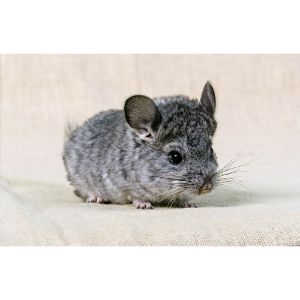
Does everybody remember the famous Toys R’ Us stores that went out of business? Well, this Indiana-based location took a nice play on words from this infamous children’s store with their name Chinchillas R US! For those who live near Trafalgar, this local breeder is a great option.
We recommend checking out these chinchillas if you want to find healthy chinnies that are sociable, work well with kids, and have a long projected lifespan. Plus, this Indiana breeder also offers accessories, toys, and equipment, making this the perfect one-stop shop for future owners who are new to caring for chinchillas.
Lastly, Chinchillas R US shows they take good care seriously — they offer a care sheet on their website and FAQs that provide new owners with everything they could ever need to ensure their future pet is happy for many years to come.
Chinchillas R US Details:
- Location: Trafalgar, IN, United States, Indiana
- Phone Number: (317) 363-3076
- Email: chinchillasrus@att.net
- Website: Chinchillas R US
7. Humble Acres Chinchillas
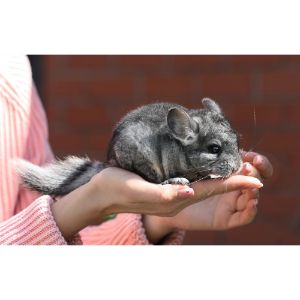
Hooray, another East Coast location! For chinchilla lovers in the Northeastern section of the United States, Humble Acres Chinchillas is the top option for homeowners in the Tri-State area. Instead of getting a huge animal or loud bird for your small NYC apartment, a chinchilla is the best way to go.
Future owners can rest assured they are choosing a reputable and knowledgeable breeder, as Humble Acres Chinchillas is a dual member of the Mutation Chinchilla Breeders Association and the Empress Chinchilla Breeders Cooperative. Their expertise and knowledge in chinchilla care have made this location home to numerous awards and accolades.
Just like other chinchilla breeders we mentioned in this foolproof list, Humble Acres Chinchillas offer numerous colors, sizes, and shapes of chinchillas. If you are looking for a specific “mosaic” chinchilla or a “standard” chinnie, you can find it here!
So, why should you choose Humble Acres over other popular breeders in the country? One of the main perks of this NYC breeder is its fair and affordable pricing structure. Unlike other options, which can reach thousands of dollars for specialty breeds, Humble Acres offers a standard chinnie for just $50.
If you would like a more specialized type of chinchilla, you can still rest assured that you will be paying less than $500 for a “high-end” animal — less than 1⁄3 of other breeders!
Humble Acres Chinchillas Details:
- Location: Nationwide
- Email: humbleacreschins@gmail.com
- Website: Humble Acres Chinchillas
8. NWI Chinchillas
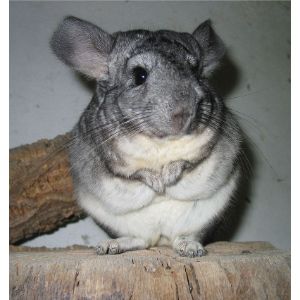
Last but not least, we have another Indiana-based breeder on the list of the best Chinchilla breeders in the United States who is popular in the industry for their high standards, large breadth of knowledge, and proficiency in the chinchilla world. NWI Chinchillas was founded in 2003, hosting almost 20 years of knowledge when it comes to chinchilla rescue, chinchilla care, and breeding.
Located in Chesterton, this famous breeder is a member of both the Mutation Chinchilla Breeders Association and Empress Chinchilla Breeders Cooperative.
Plus, all of the animals taken care of at NWI Chinchillas are bred for health — this means the owners here pride themselves on caring for each chinchilla to lead to a long-lasting life, not just breeding animals for the most profit.
In addition, NWI Chinchillas focuses on fostering chinchillas to help poor animals who were not taken care of properly. You can find an abandoned chinchilla, the necessary care items (i.e., food, hay, toys, etc.), and pay to have them groomed all in one place!
Lastly, NWI Chinchillas offers a wide range of chinnie options for future owners. It doesn’t matter if you want a high-end white ebony animal or a “standard” gray chinnie to adopt – they have something for everyone!
Are you thinking of adopting or buying a chinchilla from a breeder? Choose a reputable breeder from this list to ensure you have a healthy, happy, and sociable pet for your home! You will soon fall in love with this cuddly and cute creature.
NWI Chinchillas Details:
- Location: 4294 N 900 W, Wolcott, IN 47995
- Phone Number: (219) 789-0026
- Email: amgajda@sbcglobal.net
- Website: NWI Chinchillas
Conclusion For “Best Chinchilla Breeders in The United States”
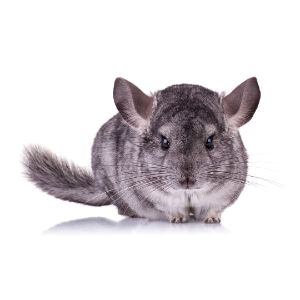
Using these foolproof websites, you can easily find one of the best chinchilla breeders in the United States to get a cute and cuddly pet! Whether you need a chinchilla breeder in Chicago, California, or New York City, there is a breeder for all of your needs.
You will also like:
- Double Doodle Breeders in the USA
- Mini Sheepadoodle Breeders in the United States
- Cairn Terrier Breeders in California
For more information about Chinchillas, check out the video below:
Today we are going to talk about the best British Shorthair breeders in The United States. If you’re interested in adding a cat to your family, why not consider getting a British Shorthair? This popular breed has a laid-back disposition, an easy-to-groom coat, and a long lifespan, making them an ideal pet for homes with kids and dogs.
You don’t have to travel overseas to find a British Shorthair London breeder. Instead, you can find several reputable breeders across the United States offering delightful kittens that meet breed standards established by the Cat Fanciers’ Association and other breed-centric organizations.
Don’t know where to start searching for a reputable British Shorthair breeder? Then, keep reading this list of our top picks.
Other articles you would like: Best Russian Blue Cat Breeders in the United States and 8 Best Ferret Breeders in the United States! (2023)
1. Tesoro Cattery

The first British Shorthair breeder we recommend checking out is Tesoro Cattery. Sophia Zhang specializes in breeding British Shorthairs with sound temperaments and minimal health issues for families interested in getting a friendly house cat. She also offers British Longhairs.
Typically, Zhang starts reserving her kittens to interested applicants when they’re six to eight weeks old. If you’re interested, you can send her a $500 non-refundable deposit with your application. Each kitten goes to their new home with up-to-date vaccinations and deworming and 30 days of health insurance.
All kittens also come with a three-month genetic health warranty for Hypertrophic Cardiomyopathy, a common feline heart disease, and Polycystic Kidney Disease, which leads to kidney failure. This British Shorthair breeder lets eligible applicants take a new companion home after ten to 12 weeks.
Tesoro Cattery Details:
- Location: Brooklyn, New York
- Phone Number: (626) 818-9056
- Email: tesorocattery@gmail.com
- Website: Tesoro Cattery
2. Lionsheart Cattery

Lionsheart Cattery is an excellent option for anyone on the West Coast. Karina Vladi Abramian prioritizes producing litters with champion bloodlines that retain the breed’s compact body and round head shape, typically called Original Cheshire Cats.
Several of her sires and dams are registered by The International Cat Association and undergo health evaluations to ensure they don’t pass down specific genetic health issues.
This breeder’s British Shorthair kittens go to their new homes fully vaccinated, dewormed, and microchipped when they’re four months old. They also get trained to use a scratching post and litter box.
Lionsheart Cattery Details:
- Location: Los Angeles, California
- Phone Number: (310) 962-4130
- Email: lionsheartcattery@gmail.com
- Website: Lionsheart Cattery
3. Ouachita British Shorthairs

If you live near Arkansas, the best place to find healthy kittens is Ouachita British Shorthairs. Breeder Suzanne Henn is a licensed veterinarian who raises her kittens in a calm, loving home environment. She’s also a member of The Cat Fanciers’ Association.
Suzanne prioritizes getting her kittens accustomed to human contact and socializes them with their littermates to prepare them for life with their new families. What’s more, she screens her breedable cats to ensure they don’t have any congenital health issues.
To register your interest, you can send her a $1000 non-refundable deposit with your online application. The kittens can go to their new owners at least 12 weeks old. Each gets spayed or neutered, vaccinated, and dewormed. New owners receive a care package with a blanket, toy, and sample of kitten food.
Ouachita British Shorthairs Details:
- Location: Plainview, Arkansas
- Phone Number: (479) 272-5854
- Email: ouachitabritishshorthair@gmail.com
- Website: Ouachita British Shorthairs
4. Shining Blue Cats

Shining Blue Cats can be found in the Pacific Northwest. Tatiana Perry offers kittens in classic solid coat colors, including lilac or blue. Her main concerns are the kitten’s health and socialization to ensure they live long, healthy lives.
Tatiana’s sires and dams have health clearances for kidney issues and Feline Immunodeficiency Virus, a condition that leaves your cat vulnerable to other diseases as their immune system combats FIV.
Interested applicants can send Tatiana a $500 non-refundable deposit to place a kitten on hold. Her British Shorthair kittens can go to their new homes when they’re 12 to 15 weeks old. They’re microchipped, vaccinated, and have a one-year health guarantee for congenital diseases.
Shining Blue Cats Details:
- Location: Roseburg, Oregon
- Phone Number: (541) 294-9877
- Email: contact@britishshorthairblue.com
- Website: Shining Blue Cats
5. Miss Priss Brits

If you live in the Midwest region and want to add a British Shorthair to your family, consider reaching out to Becca O’Bryan at Miss Priss Brits. Each of the cattery’s kittens is socialized with humans and dogs before being sent to a forever home.
All of her breedable cats test negative for feline leukemia. Coat color-wise, she specializes in breeding gold and silver British Shorthair kittens with European Champion and Grand Champion bloodlines.
Miss Priss Brits requires a $900 deposit to place a kitten on hold. However, returning customers are eligible for $500 discounts. Each kitten gets age-appropriate vaccinations, fecal testing, deworming, and blood testing before leaving the cattery. They also get 30 days of Trupanion pet insurance.
Miss Priss Brits Details:
- Location: St. Louis, Missouri
- Phone Number: (636) 248-2000
- Email: miss.priss.brits@gmail.com
- Website: Miss Priss Brits
6. Imagine Cattery

Imagine Cattery is a TICA-approved British Shorthair breeder in the Western United States. This breeder raises their cats in a secure, clean, cage-free indoor setting. Additionally, the kittens get accustomed to human touch and playtime with people of all ages (not to mention dogs).
The felines at Imagine Cattery have award-winning bloodlines from Australia and Russia. They come in a wide selection of coat colors and get tested for several genetic health issues.
Once the kittens are old enough to go to their new homes, they get vaccinated and dewormed. To declare your interest, you can send in an online application with information about your work schedule and family size.
Imagine Cattery Details:
- Location: Loveland, Colorado
- Phone Number: (970) 581-8062
- Email: imaginecattery48@gmail.com
- Website: Imagine Cattery
7. Britland Cattery
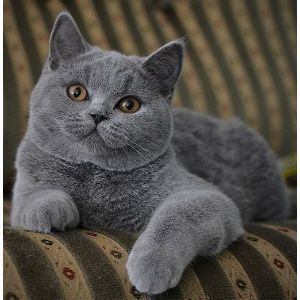
Another excellent TICA-registered British Shorthair breeder on the East Coast is Britland Cattery, located near Baltimore. Natalya Sproles raises her British Shorthairs in her home for anyone seeking a mellow yet friendly companion cat.
Natalya’s sires and dams receive regular health evaluations before producing any litters. The youngest kittens start socializing early and get regular deworming and vaccinations. Eligible applicants must send a $500 non-refundable deposit to keep a kitten on hold.
All British Shorthair kittens get placed on a spay or neuter contract. New owners also receive a sample of cat food.
Britland Cattery Details:
- Location: Baltimore, Maryland
- Phone Number: (410) 908-6930
- Email: britlandcattery@aol.com
- Website: Britland Cattery
8. Beauty Tracks Cattery

Beauty Tracks Cattery is a small, family-owned hobby breeder located halfway between Portland, Oregon, and Seattle, Washington, and is one of the Best British Shorthair breeders in the United States. Although Diana and Cynthia Falter primarily raise their British Shorthair kittens indoors, they occasionally take them outdoors for casual playtime and exploration.
Each parent cat gets tested for several genetic issues to ensure their kittens don’t inherit them. Moreover, Beauty Tracks Cattery feeds their cats and kittens quality meat-based and dry food to promote proper nutrition.
You can send the cattery a $200 deposit if you’re interested in one of their adorable kittens. Once you have an approved application, you’ll get to take your new pet home after ten to 15 weeks. Every kitten receives vaccinations for Feline Distemper, upper respiratory infections, and other feline viruses, and goes home with a six-month health guarantee for genetic health issues.
Beauty Tracks Cattery Details:
- Location: Toledo, Washington
- Phone Number: (360) 431-5347
- Email: britishblueshorthair@gmail.com
- Website: Beauty Tracks Cattery
Things To Consider When Choosing a Reputable British Shorthair Breeder
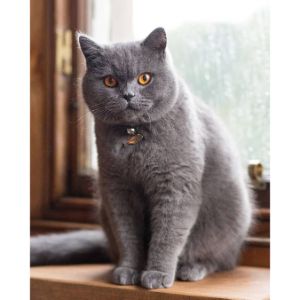
You’ll need to consider several things before choosing a reputable British Shorthair breeder to make sure you get a kitten healthy enough to live a long life with their new family. If you’re unsure where to start, consider the following.
Experience With the Breed
The best British Shorthair breeder should have plenty of experience working with or raising the breed. Seasoned breeders are a great source of insight for potential new cat owners with questions about how to keep their pets in top condition.
Health Coverage
Whether you plan on purchasing a kitten overseas from a British Shorthair London breeder or a closer US-based option, it’s essential to find someone who is committed to the health of their cats.
Responsible breeders get their cats tested for various genetic health issues, such as heart or kidney issues and Hemophilia B, a blood clotting disorder. They also offer new owners genetic health guarantees for at least six months.
Pedigree Associations
If you’re looking for an authentic, purebred British Shorthair, you’ll need to find a breeder who specializes in bloodline quality. Breeders with champion bloodlines with at least four or five generations of cats are an ideal starting point.
This pedigree is also ideal to ensure that the breeder carefully selects their cats when producing litters and doesn’t participate in inbreeding.
Spay or Neuter Policies
Many breeders incorporate a strict spay or neuter policy when selling their kittens to prevent unwanted litters and the development of uterine infections or testicular cancer.
They usually give new owners a contract telling them when to get their kitten fixed, typically when they’re about six months old. Some breeders get their kittens spayed or neutered before sending them to their new homes.
Kittens’ Ages
Most British Shorthair breeders sell their kittens when they’re about ten to 15 weeks old. This time frame gives the kittens plenty of time to get proper socialization, weaned off their mother’s milk, and receive age-appropriate vaccinations and deworming.
A breeder who sells a cat at a younger age is most likely an unethical kitten mill owner who puts profit over the safety and health of their litters.
What’s the Cost of Buying a British Shorthair From a Breeder?

The cost of a kitten can vary from breeder to breeder. For instance, a British Shorthair London breeder may charge more for a kitten with an extensive purebred pedigree than a US-based option with a four-generation pedigree.
Some individuals sell kittens at the same price, regardless of gender or coat color. However, rare coat colors and patterns can increase the asking price. Moreover, a breeder may also charge buyers extra if they offer shipping or extended boarding.
Conclusion For “Best British Shorthair Breeders in The United States”

Several places across the United States offer healthy British Shorthair kittens without worrying about traveling internationally to get one from the UK. Selecting the best British Shorthair breeder can feel overwhelming, but doing extra research is worth it when looking for a quality, pedigreed pet.
Consider reaching out to CFA or TICA-approved breeders. They prioritize giving each cat a thorough health evaluation, raising them in a safe, indoor environment, and getting them accustomed to socializing with humans and animals.
This breed’s mellow disposition, round head, and plush coat make them a great cat to have around your house and your family members. With this list on hand, you’re one step closer to finding your new kitten.
You will also like:
- Best Bengal Cat Breeders in California
- Best Ferret Breeders in the United States
- Best Mini Sheepadoodle Breeders in the United States
For more information about the British Shorthair Breed, check out the video below:
Horses have been an integral part of the North American lifestyle, even before the United States gained independence. In the United States, they symbolize class and the cowboy culture that holds great sway in the minds of the people which is why you may very well be looking for the best horse breeders in California.
This article will list the seven best horse breeders in California. You will also learn how to choose a perfect breeder for getting a foal or an adult horse!
Having a horse is an enriching experience. You form a deep and emotional relationship with your horse. And it doesn’t matter whether you buy a horse for riding or for the racecourses, having them will reward you in ways you had never thought possible! Let’s see the breeders from which you can get a foal.
Other articles you would like: Best Boerboel Breeders in California and Best Cavalier King Charles Breeders in California
1. Daehling Ranch Thoroughbreds
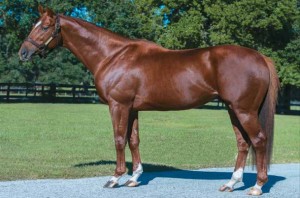
Daehling Ranch Thoroughbred can be your destination if you’re looking for a horse in California. They are located in Elk Grove and have served California since the early 1980s. They aim to make the ranch one of California’s most prominent Thoroughbred farms.
The place has a certified veterinarian who specializes in reproduction visiting the farm several times a week. All young horses undergo five-panel tests. These tests include GBED (glycogen branching enzyme deficiency), HERDA (hereditary equine regional dermal asthenia), and a few more tests.
The vet examines health, foaling, and broodmares and provides them with essential treatment. Even the farm members check pregnant mares with an electronic foaling system. They breed and raise healthy foals. Further, they have on-site trainers who train your horse and nutritionists to ensure each foal receives a proper diet.
Daehling Ranch Thoroughbreds Details:
- Location: 10045 Grant Line Road, Elk Grove, California
- Phone Number: (916) 996-0887 / (916) 832-7832
- Email: joldfield@daehlingranch.com
- Website: Daehling Ranch Thoroughbreds
2. Tommy Town Thoroughbreds

Established in 2000, Tommy Town Thoroughbred has been a leading horse breeder in California for over four years. The farm is spread over 359 acres of land and looked after by 25 regular employees. They have a specialized vet who is an expert in caring for foals and broodmares.
They only breed in selected numbers to maintain the quality of foals. For breeding, the ranch has a barn consisting of 35 foaling stalls on the premises. Over the years, the farm has been breeding and training racehorses who have won many races. They recently started a stallion career in 2018. Their training program comprises top facilities to ensure you get a trained horse.
Tommy Town Thoroughbreds Details:
- Location: 5699 Happy Canyon Rd, Santa Ynez, California
- Phone Number: (805) 686-4337
- Email: info@tommytownfarms.com
- Website: Tommy Town Thoroughbreds
- Social Media: Facebook
3. Branscomb Farm
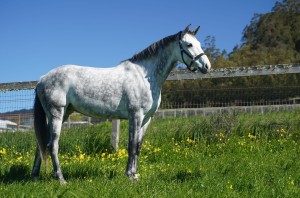
Spread over 74 coastal acres in Half Moon Bay, Branscomb Farm is one of the best horse breeders in California. The ranch raises, breeds, and trains horses to ensure you get an ideal horse. All young horses undergo five-panel tests, including GBED, HERDA, HYPP, MH, and PSSM.
To create foals of the highest quality, athleticism, and rideability, they breed a unique assortment of performance-tested premium, elite, and premium Verband-recognized mares with frozen semen from Europe’s top stallions.
They have two experienced trainers and nine farm employees to care for each foal individually. Its mission is to provide the best quality horses from Europe, bred and raised here in the USA.
A certified veterinarian visits the farm regularly to ensure the health of each horse on the farmland.
Branscomb Farm Details:
- Location: 780 Frenchmans Creek Rd, Half Moon Bay, California
- Phone Number: (650) 560-9650
- Email: info@branscombfarm.com
- Website: Branscomb Farm
- Social Media: Facebook
4. Sherman Ranch
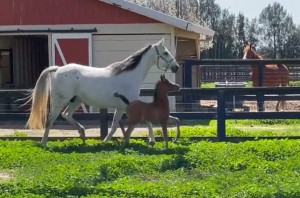
Do you like the idea of being able to access a horse breeder in California having 40 years of experience in breeding? Then you should definitely check out Sherman Ranch! Sherman Ranch has been in breeding since 1975.
Marty Sherman is the owner here who operates the farm with her daughter. Their farm spans over 145 acres in beautiful Pleasanton, California. She started breeding and raising horses as a hobby, which has now become a profession.
The breeder’s mission is to breed healthy and talented Arabian horses worldwide. They are on their way by evolving their breeding program and training sessions. The ranch also offers various services like boarding, mare and foal care, trailer parking, and body clipping.
Sherman Ranch Details:
- Location: 7500 Camino Tassajara, Pleasanton California
- Phone Number: (925) 216-6316
- Email: shermanrancharabians@gmail.com
- Website: Sherman Ranch
- Social Media: Facebook
5. Lazy K Ranch
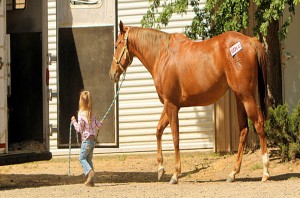
Lazy K Ranch got registered in 1958 by Mike Knapp, and today it is a prosperous ranch in California. With the ongoing demand for ranch horses, the farm members spend more hours raising young horses. Today, the farm raises 60+ high-quality colts each year.
They start the sale of the horses over their website. You can visit their website on Saturday and bid for your favorite horse.
The horses at this ranch are extremely well-trained and well-groomed. They undergo a thorough grooming session before sale day. Furthermore, each horse has a five-panel test, including GBED, HERDA, HYPP, MH, and PSSM.
Lazy K Ranch Details:
- Location: PO Box 850, 8314 S. Santa Fe Ave. Chowchilla, California
- Phone Number: (559) 760-7055 / (559) 481-9080
- Email: sherry@lazykranch.com
- Website: Lazy K Ranch
- Social Media: Facebook
6. Legacy Ranch
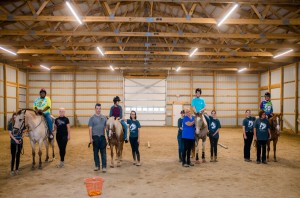
Pete and Evelyn Parrella are the owners and breeders behind Legacy Ranch. They have more than 30 years of experience in breeding and training horses. Pete has served on the Board of the California Thoroughbred Breeders Association for nine years.
The farm spans a large area of 145 acres in Clements town of California. A total of thirty experienced workers take care of all their horses inside the ranch. Each foal and horse undergoes health checkups with a certified veterinarian regularly. They also have a ⅝ miles track maintained by track experts to train their horses.
Legacy Ranch Details:
- Location: P.O. Box 538, 21455 N. Clements Road Clements, California
- Phone Number: (209) 759-3315 / (510) 928-4980
- Email: info@legacyranchinc.com
- Website: Legacy Ranch
- Social Media: Facebook
7. Sommer Ranch
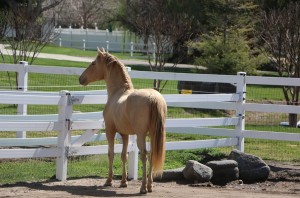
Last on our list of the best horse breeders in California is “Sommer Ranch.” They are a family-owned business that has been breeding and selling Andalusian horses since 1989. This place is an hour’s drive from Ontario and San Diego airports.
The farm specializes in color DNA. They are also an active member of the associations ANCCE and IALHA. They focus on conformation and movement, and their primary objective is consistently breeding for the best possible temperament. The breeder wishes to provide a companion who can accompany you and help you win a blue ribbon in show rings.
Sommer Ranch Details:
- Location: 36068 Hidden Springs Rd., Suite C-12 Wildomar, California
- Phone Number: (661) 816-1001
- Email: sommerranch@gmail.com
- Website: Sommer Ranch
How to Choose a Horse Breeder in California
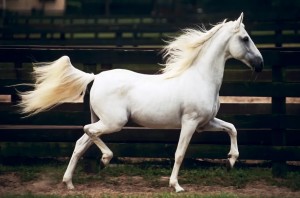
Firstly, you need to understand horses have many breeds. And choosing one depends upon your lifestyle. Quarter Horse, Shetland Pony, Thoroughbred, and Arabian are some popular horse breeds you’ll find in the USA.
Furthermore, the size of horses is measured in hands. And one hand translated to 4 inches. Now, here are some of the tips you should keep in mind before finalizing a horse breeder:
Choose According to Your Lifestyle
Buying a cold-blooded or a Thoroughbred racehorse makes no sense if you’re a first-time horse owner. In this case, you should start with a calm horse, such as a Quarter Horse.
Similarly, choosing according to your height will ensure you don’t get hurt while riding your horse. Furthermore, your goal and lifestyle should also be a factor before you finalize a horse.
Collect Your Queries
Before you visit the ranch, we advise you to research your horse breed and form a list of questions.
Consequently, you’ll sound like an informed buyer and someone passionate about horses.
Ask for The Test Ride
When you visit the ranch, don’t forget to ask for a test ride. This tip won’t be applicable if you’re buying a foal. However, you’ll know better about an adult horse after a real riding experience.
Get Inspected By a Vet
If the ranch doesn’t have an on-site vet or proper certificates for health, ensure that you get your horse checked by a vet for any medical problems.
More Information About Horses in California
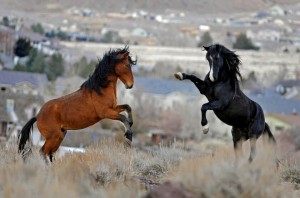
As you can see, there are some reputable ranches in California breeding a variety of horse breeds. We identified and included the best ones among them in our list. These breeders possess years of experience in horse breeding and caring for horses.
Furthermore, their practices are at par with standards set by many horse associations and the government. We have also included each and every contact information about their ranch. You can use them to inquire and book your appointment.
Conclusion For “Best Horse Breeders in California”
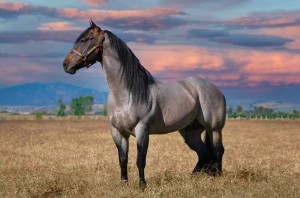
So, you now have the list of seven best horse breeders in California. Go ahead, and use this list and the knowledge shared in this guide to bring a horse home soon.
Horses are an excellent pet and as good as a dog or a cat. You can use them for pleasure-riding, dressage, or to explore the countryside.
Remember, horses have many breeds. Just like dogs! Therefore, we advise you to research the breed and buy as per your preferences.
You will also like:
- Best Cairn Terrier Breeders in California
- Best Bengal Cat Breeders in California
- Best Rat Breeders in California
For more information about Horses, check out the video below:
Today we are going to talk about the best Claret Gamefowl breeders in the US. Claret Gamefowls are a beautiful breed of chicken popular among those who enjoy chicken breeding and showing. While they are not as well known as some of the other Gamefowl breeds, they are becoming more popular in recent years.
If you are considering getting into the Claret Gamefowl business, there are a few things you need to know about this breed of chicken. After that, we’ll give some examples of Claret Gamefowl breeders you can turn to.
Other articles you would like: Best Double Doodle Breeders in the USA and Best Ferret Breeders in the United States
Breed Characteristics
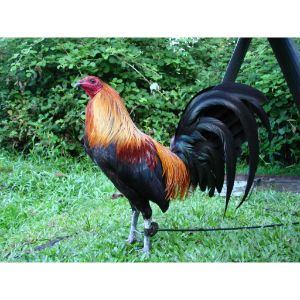
The first thing you need to know about Claret Gamefowls is that they are a very hardy breed. They can withstand cold weather and hot weather alike. This makes them ideal for those who live in areas with extreme temperatures. They are also known for being very disease resistant, which is another plus for those who are looking to get into the Claret Gamefowl business.
The Claret Gamefowl is a deep red bird with white legs. The hens tend to be a little lighter in color than the cocks. The roosters usually have more white on their bodies than the hens do. The Claret became a bird that won shows and cockfights. It was a bird that was bred for beauty and function.
Another thing you need to know about Claret Gamefowls is that they are a very active breed. They are very playful and energetic and weigh up to 2.5 kilos. They can be an excellent asset for those who are looking to get into the Claret Gamefowl business, as they will be able to keep their birds active and healthy.
If you are considering getting into the Claret Gamefowl business, there are a few things you need to keep in mind. First, find a reputable breeder. There are many different breeders out there, so you will want to ensure that you find one with a good reputation.
Second, you need to make sure that you are getting healthy birds. What this means is that you should get your birds from a breeder of Gamefowl who takes good care of their birds. If you plan on using the birds in cockfighting, you must ensure that your bird is a prime expression of their genetics.
History of The Claret Gamefowl
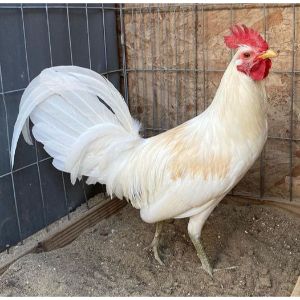
John H. Madigin was the one doing the first match that then originated the Claret Gamefowl species. Believe it or not, the discovery happened by accident. The pair that created the Claret breed was bred by accident, but it turned out to be the best accident ever.
Let’s look at how it happened. A friend of Mr. Madigin’s presented him with a Duryea White hackle hen. The hen was then shipped to Fort Erie where she was placed with a cock from Hank Dean.
The hen set and raised nine deep red stags that looked like the beautiful Claret wines from France. Mr. Madigin was so taken back by their beauty that he decided to name the breed after the wine. The Claret Gamefowl quickly became a prevalent breed among chicken enthusiasts. Clarets were bred that way until 1930.
Then Madigin used one of the White-Leg cocks from Phil Marsh to breed a cock. After this, the Clarets come with white legs and deep red. But some are all white.
The resulting cock of the breed became known as “the Daddy of Clarets” and was used in many successful crosses that resulted in some of the best Clarets around.
Use Clarets to Enhance Any Breeding Program
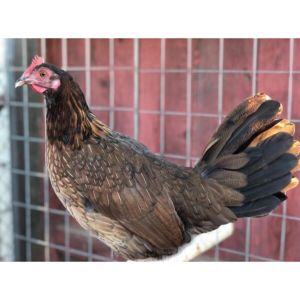
The Claret Gamefowl is a beautiful bird that can add a touch of class to any flock. They are straightforward to care for and make great pets. Clarets are also excellent layers of brown eggs. If you are looking for a good-sized chicken that is both beautiful and useful, the Claret Gamefowl is the breed for you.
Breeding Clarets can be a great way to improve the quality of your flock. And if you use Breeder Ade for Gamefowl the breeding process will be even easier. Breeder Ade improves egg production and fertility, and strengths the health of the parents. You’ll achieve a higher number of chicks and increase their chance of survival.
If you are considering getting into the Claret Gamefowl business, there are a few things you need to keep in mind. First, find a reputable breeder.
Finding the Best Claret Gamefowl Breeder
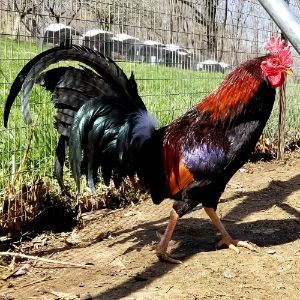
When it comes to finding the best Claret Gamefowl breeders in the US, you will want to make sure that you take your time and do your research. This way, you can be sure that you are getting the best possible birds for your needs.
Breeders don’t sell Claret birds for fighting. They only sell them for breeding and showing. Therefore, if you want a Gamefowl Claret, you may need to search for other breeders.
Let’s look at some of the best Claret Gamefowl breeders in the United States.
1. Belt Game Farm
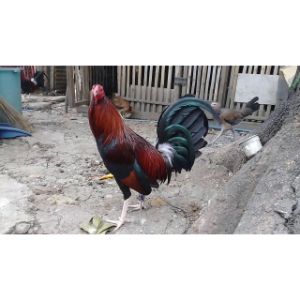
Belt Game Farm sits in Sealy, Texas. They offer their gamefowl customers a wide variety of gamefowl, including Claret Gamefowl. One thing that sets Belt Game Farm apart from other breeders is that they only sell their birds for breeding and showing. It means you can be sure that you are getting healthy birds that have been well-cared for.
Belt Game Farm Details:
- Location: Sealy, Texas
- Phone Number: (559) 905-7567
- Website: Belt Game Farm
2. Stone County Game Farm
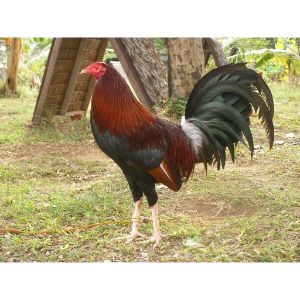
Stone County Game Farm sits in Wiggins, Mississippi. While not much information exists online about this Gamefowl breeder, customers appreciate their selection of Claret Gamefowls.
Stone County Game Farm Details:
- Location: 320 County Shop Road 65681
- Website: Stone County Game Farm
3. Mississippi Gamefowl Breeders Association
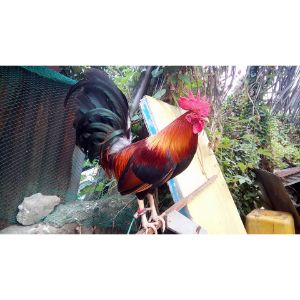
The Mississippi Gamefowl Breeders Association is a non-profit organization dedicated to effectively preserving and promoting gamefowl breeding in Mississippi. They offer their members many services, including gamefowl breeding, training, and shipping.
Mississippi Gamefowl Breeders Association Details:
- Location: Mississippi
- Phone Number: (601) 408-0905
- Email: j.cuevas2013@icloud.com
- Website: Mississippi Gamefowl Breeders Association
4. Southern Gamefowl Breeders Association
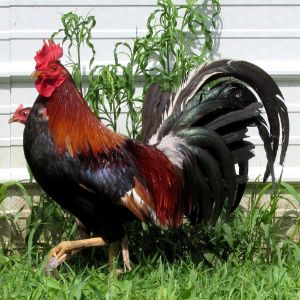
The Southern Gamefowl Breeders Association is a non-profit organization dedicated to serving its clients by providing high-quality and trusted Gamefowl breeding in the Southern United States.
Gamefowl breeders in the United States have a passion for the sport of Gamefowl breeding and commit lots of time and energy to preserving and promoting the Gamefowl industry in the United States.
Southern Gamefowl Breeders Association Details:
- Location: Southern United States
- Website: Southern Gamefowl Breeders Association
5. The Cackle Hatchery
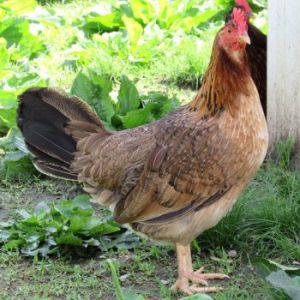
The Cackle Hatchery is a family-owned business that has been operating for decades. Their farm sits in Lebanon, Missouri. They offer a variety of Gamefowl, including Claret Gamefowl. They also provide training and shipping.
If the Cackle Hatchery doesn’t currently have Clarets available, check back often as their inventory is constantly changing. You can also view their website to see what other Gamefowl they have available.
The Cackle Hatchery Details:
- Location: 411 W Commercial St, Lebanon, MO 65536
- Phone Number: (417) 532-4581
- Email: cacklehatchery@cacklehatchery.com
- Website: Cackle Hatchery
6. Bill Roberts Fine Fowl
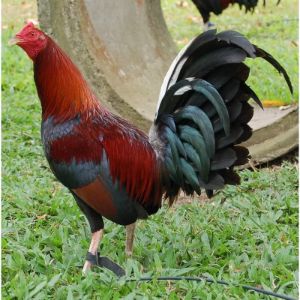
Bill Roberts Fine Fowl is another family-owned business that has been operating for decades. His farm sits in Ivins, Utah. They offer a variety of Gamefowl, including Claret Gamefowl. Bill Roberts is a top breeder and has won many awards for his birds. If you’re looking for the best Claret Gamefowl in the US, look no further than Bill Roberts Fine Fowl.
Bill Roberts Fine Fowl Details:
- Location: 550 South 400 West, Ivins, UT 84738
- Phone Number: (435) 862-2512
- Website: Bill Roberts Fine Fowl
Frequently Asked Questions
What is a Claret Gamefowl?
A Claret is a type of chicken known for its fighting abilities and beautiful foliage. Today, they are used for cockfighting in some parts of the world but are also kept as pets and for exhibition purposes.
What are the characteristics of a Claret?
Clarets are large, muscular birds with long legs and large bodies. They have deep red and black plumage with black tips on their feathers. Their beaks are curved, and they have long powerful claws.
Can you breed a Claret with another gamefowl to enhance performance?
No, Clarets should only be bred with other Clarets in order to maintain their purity and fighting ability.
What is the average lifespan of a Claret?
Clarets have a lifespan of around ten years. In captivity, Clarets tend to live up to 15 years.
What do Clarets eat?
Clarets are omnivorous and will eat most things, but they prefer a diet that is high in protein. They should also have access to grit so that they can digest their food properly.
Conclusion For “Best Claret Gamefowl Breeders in The US”
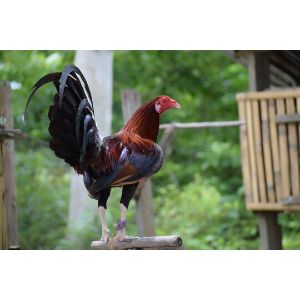
There you have it! Clarets are very popular Gamefowls that are known for their fighting abilities. These birds make great pets. They can also work for exhibition purposes. If you’re thinking about getting a Claret, be sure to do your research and find a reputable breeder.
These are the best Claret Gamefowl breeders in the US. If you’re looking for top-quality birds, check out one of these breeders. You won’t be disappointed.
You will also like:
- Best Fighting Rooster Breeds
- Best Russian Blue Cat Breeders in the United States
- Best Mini Sheepadoodle Breeders in the United States
For more information about Claret Gamefowl check out the video below:
Rabbits make cute pets, and if you already have a male and a female, you might feel inclined to breed them. It’s not too difficult to breed pet rabbits, but it takes a lot of patience. Read on to learn how to breed rabbits and what to consider when you embark on this task.
Other articles you would like: How To Breed Pet Birds? and How To Make Dogs Breed Successfully.
Getting Started With Breeding Pet Rabbits
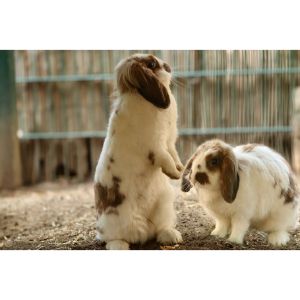
When breeding rabbits, there are specific ways you should do things to ensure it goes smoothly.
Females are territorial, so you don’t want to bring a male to her cage to mate. She’s more likely to attack the male instead of mating with him. For rabbits with separate houses, you should always take the female to the male to mate.
You can ensure the rabbit’s mate by watching their actions. If the female is willing to mate, she lifts her tail. The male sees this signal and mounts her. He falls off when he finishes. Allow them to do their business several times before you take the female back to her cage.
Mating stimulates the female rabbit’s ovulation, so you should mate them again after about ten hours. This repetition makes it more likely that she’ll get pregnant and give birth to a large litter of bunnies.
You must observe when the male and female are together because they won’t always mate. Sometimes the female isn’t ready. Rabbits like dogs and cats don’t go into heat, so you never know when they’re ready to mate. You’ll have to try several days in a row if they don’t mate when you first put them together.
Things To Consider
People use the phrase “breed like rabbits” to imply something multiplies quickly, but that isn’t always the case. You might find yourself waiting for your rabbits to mate, and then you’ll have to wait even longer to see if the female is pregnant.
You shouldn’t mate rabbits that are siblings. That’s inbreeding and can lead to genetic problems and illnesses that impact your rabbit’s quality of life.
Knowing the best ways to encourage your rabbits to breed can help speed up the process. If your rabbits aren’t breeding, ensure you have everything right. When they feel healthy and comfortable, they’re more likely to mate.
Why Won’t Rabbits Breed?

Since you don’t know when rabbits want to mate, it’s hard to know why they’re not breeding. Sometimes they’re just not into it, but it might happen if you put them together for several days in a row. If you keep putting them together and they won’t breed, make sure you have all the conditions just right.
Temperature
Rabbits won’t mate when it’s too hot outside. The act gets their blood pumping and will heat them even more, so it’s a lot of effort. Extreme heat can also cause males to go sterile temporarily. If you live in a hot climate, they might even stay sterile for the three months of summer.
For rabbits, anything above 85 degrees is too hot for pregnancy. Even if they mate in the heat, you’re unlikely to get a litter of rabbits from the process.
Light
Rabbits are sensitive to daylight-like humans and chickens. They need a certain amount of light to trigger their circadian rhythm and get enough sleep. If they’re in the dark too much, they can feel depressed. As with humans, you can offset this feeling by using artificial light to stimulate them.
Add a light near their rabbit hutches in seasons when the day isn’t 12 hours long. The additional hours of light will help them feel healthier and get enough rest. As a result, they’ll feel more inclined to breed.
Weight
Overweight rabbits won’t mate because they’re infertile. You can change their diet and give them plenty of room for exercise to help them reach a healthy weight. They’re more likely to want to breed at that point, and those matings are more likely to lead to litters of bunnies.
Litter Spacing
Professional rabbit breeders keep a schedule for litters. They won’t breed a female rabbit who had a little less than 21 days ago. She needs time to nurse them, and breeding her again too quickly can lead to reproductive problems. She might have a smaller litter, or more bunnies might die because she has more than she can handle.
If you leave them alone, the babies wean from the mother by the time they’re four weeks old. You can then breed the mother again if you’re ready for another litter of rabbits.
Waiting too long between litters can also impact the likelihood that your rabbit gets pregnant. Once they’re out of practice, inspiring them to mate and have another litter can be hard. Keeping a schedule can help you take advantage of your rabbits’ health and youth.
How Can You Tell if Your Rabbit Is Pregnant?
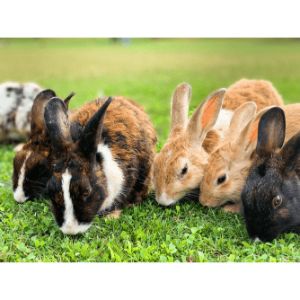
Female rabbits won’t always get pregnant after mating. As previously mentioned, mating encourages ovulation, so the first time isn’t always enough. After several days of mating, you might still not know if your rabbit is pregnant.
A rabbit’s pregnancy lasts about 31 to 33 days. You might notice the female has a round belly close to the end of her pregnancy. Keeping track of when you breed your rabbits can help you track a pregnancy. Weight gain isn’t always noticeable, though, so some rabbit owners get a surprise when they see their rabbits having babies early one morning.
Sometimes it’s easier to tell your rabbit is pregnant by watching her behavior. She might not want you to hold her as much as before. She might also experience mood swings and react harshly to any rabbits that live with her.
She’ll pull fur from her body to line a nest for the litter. This step usually happens just a few hours before she gives birth, so you’ll have to watch it late at night. Litters are often born in the early morning. The birth only takes 15 minutes, so you’ll want to keep an eye on the rabbit if you think she’s pregnant, or else you’ll miss it.
You can take your rabbit to the vet to determine if she’s pregnant. The babies are about the size of a grape two weeks after a successful mating. The vet can also give you an idea of how many babies she might have. Small breeds of rabbits usually have four or five babies per litter. Larger breeds can have eight to 12 babies at once.
While it’s possible for you to feel the babies in the rabbit’s belly yourself, it’s dangerous. An inexperienced hand can harm the baby and the mother, so leave that to your vet. If you don’t want to take her to the vet, you can just wait and see if she gives birth.
Female rabbits can experience pseudopregnancy. They might breed with a sterile male or didn’t complete the mating process after the mounting. The action still causes a physiological response where the female feels pregnant. She’ll build a nest for her babies, even though she’s not pregnant.
A pseudopregnancy can last up to 17 days. During this period, the female won’t mate with another male because she thinks she’s pregnant. There’s nothing wrong with the pseudopregnancy period, but it will delay your chance of breeding your rabbits. You have to wait until the female realizes there are no babies and she’s ready to mate again.
How Old Do Bunnies Have to Be to Breed?
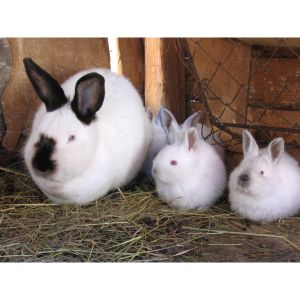
Small breeds of bunnies reach sexual maturity by the time they’re four or five months old. Larger breeds mature at anywhere from five to eight months of age. If your male and female rabbits live together, you should know that they can mate when they’re just a few months old.
While newborn bunnies can live together with no problem, you might want to separate them when they’re a month or two old. You also need to keep a male away from a litter of rabbits because he will try to mate with them.
The mother can stay with the babies to care for them, but the male must stay away from her. He’ll try to mate when she’s not ready for another litter.
Is Breeding Pet Rabbits Profitable?
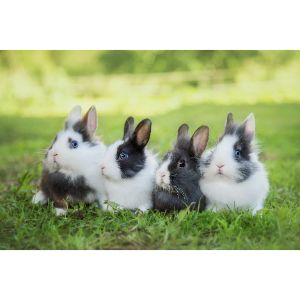
Breeding pet rabbits is profitable, but it’s not a get-rich-quick scheme. It takes patience to breed rabbits so they and the offspring remain healthy.
Though it can be tough to consider, you should also know that not all rabbits are pets. You can also sell their meat and pelts for profit. If any babies die after birth, you can sell them to pet stores as snake food.
You can also make money from rabbit manure. It’s rich in nitrogen, so gardeners love using it in flower beds. Landscaping companies are also likely to use rabbit manure in their work.
While none of these methods will bring you immediate wealth, they’re good options to make money from a hobby you already enjoy. You can sell manure in between litters, for example, since your rabbits are sure to provide plenty of it.
Is Rabbit Breeding Legal?
Rabbit breeding is legal, but there are some guidelines. If you breed rabbits and sell over $500 worth to pet stores or wholesale buyers, you have to adhere to the Animal Welfare Act. Breeders who sell directly to customers don’t face this requirement.
You’ll need to check your local guidelines if you’re a breeder selling rabbits for meat. Some municipalities have laws regarding livestock. If you meet the requirements for properly raising animals in your area, you’ll have no problem selling rabbits as meat.
You need to consider the rabbits’ needs before you start breeding them. While they make wonderful pets, they also deserve to have a good life. Neutering rabbits gives them a better quality of life because it protects them from reproductive illnesses.
Breeding rabbits to sell as pets might be legal but choose their new homes carefully. You want to meet potential owners and learn about their experience with pets before sending them home with a baby bunny. Make sure they’ll take good care of their new pet so it has a good life.
Frequently Asked Questions (FAQ)
How Long Does It Take For Rabbits To Breed?
Rabbits can start breeding between 8-12 weeks of age. However, they should start breeding at around 4-5 months so that they can reach complete sexual maturity.
What Time Of Year Is The Best To Breed Rabbits?
You should breed rabbits in colder months like September, October, and December. Rabbits don’t do well with higher temperatures, and they should therefore be bred in colder months.
How Many Rabbits Can Live Together In A Cage?
Rabbits are social creatures. So, you can have 3-4 living in a single cage. But your cage should be spacious enough to accommodate them. Otherwise, it is better if you place them in pairs of two.
Conclusion For “How To Breed Pet Rabbits”
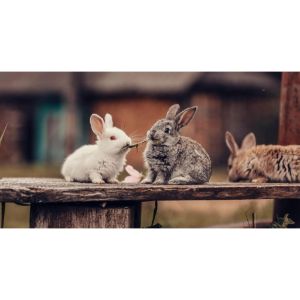
If you have a male and female rabbit who aren’t related, you can breed them. Selling baby bunnies is a great way to make some extra money. You can also keep the babies for yourself if you have the means to care for several rabbits at once.
Keeping track of a breeding schedule is the best way to mate your rabbits. You’ll know when they mated when the babies should be born, and when you can breed them again. This method ensures the rabbits all stay healthy and happy.
For more guides similar to this article about Rabbit Breeding, you can check out:
- The Best Animal Breeding Associations
- Why Do Animal Breeders Need To X-Ray?
- Is Animal Breeding Safe?
For more information about breeding Pet Rabbits, check out the video “Part 1: How to breed rabbits + telling the difference between bucks & does” down below:
If you’re like most of us, you’ve looked at your adorable dog and thought it would be great to have more of these. There is more to dog breeding than what naturally occurs when you get a mommy dog and a daddy dog together. This also begs the question, what happens if you breed a dog without breeding rights?
Other articles you would like: Why Can’t a Human Breed With Other Animals? and The Best Animal Breeding Associations
What Are Animal Breeding Rights for Dogs?
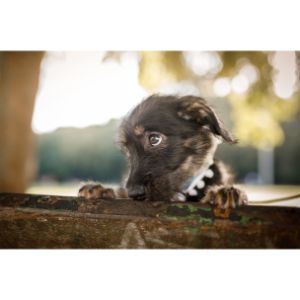
Breeding rights are a vital tool in dog breeding. Breeders use, bestow, and limit these rights to protect the development of the bloodline when selling puppies to third parties.
A litter of puppies born to a breeder without breeding rights will not be allowed to register with the American Kennel Club (AKC) and some alternative clubs. The AKC allows for two types of registration.
Full registration gives the puppy’s new owner the right to breed that dog and register the subsequent puppies. This type of registration costs more than limited registration.
Limited registration means that you can get AKC papers for your puppy, but you cannot breed the purchased puppy.
Why Do Breeders Limit Breeding Rights to Third Parties?
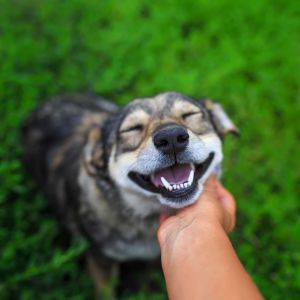
You may wonder why you need animal breeding rights for dogs. Dog breeding is an art and science meant to yield the best specimens in a particular breed.
Some dog breeders work over generations of dogs to select the best candidates to build a bloodline that results in the strongest, healthiest, most beautiful members of their breed. As those puppies grow and breed to the next generation, they represent the original breeder and their hard work.
Most breeders consider it an ethical duty to stop certain genetic defects and congenital diseases from carrying forward into future generations of dogs. Selective breeding benefits the animals and future owners. Responsible breeders assure that only the very best of the breed carry their genes forward.
Limiting breeding rights for certain puppies helps strengthen the breed and the bloodline as a whole. Breeders also understand that limiting breeding rights means that they must significantly reduce the price of those puppies. The new owner will not be able to reap any financial benefit from breeding that dog in the future.
On the flip side, a puppy who is the epitome of excellent breeding choices is worth the top dollar.
Full Breeding Rights
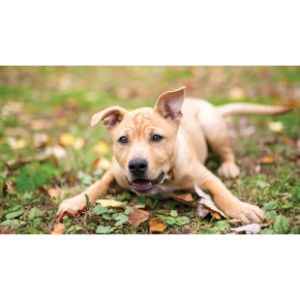
When your puppy comes with full breeding rights you can be confident that it is free from congenital defects. You can enter that dog into shows or competitions and register any puppies (granted that the other parent also carries full breeding rights).
If you choose to breed a dog who carries full breeding rights, you enter into the work of building a durable and healthy bloodline. It behooves the new breeder to maintain that line by selecting a healthy mate, screening the puppies for defects, and possibly limiting registration on some members of future litters.
Paperwork
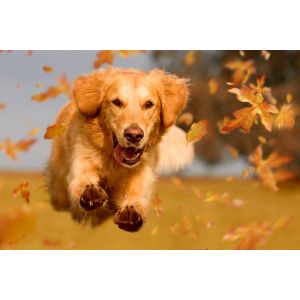
If you are reading this article, you are probably wondering, can I breed my dog without breeding rights? First, let’s look at what paperwork may be involved when you buy a purebred dog from an experienced breeder.
- Certificate of Ownership
- Health Certification
- Health Records
- Pedigree
- Breeder Contract
A certificate of ownership proves the breeder is the legal owner. You then register the dog in your name.
Health certification involves genetic testing, phenotypic evaluations, and other tests for congenital problems. Typically, breeders let you know up front what tests they provide. The cost of testing is one reason purebred dogs sell for more than puppies from a backyard breeder.
Two organizations that supervise the health certification process are The Canine Health Information Center (CHIC) and the Orthopedic Foundation for Animals (OFA).
The health record shows the dog’s vet visits, medical procedures (if any), and vaccinations.
The Pedigree authenticates your dog as a pure breed by showing its lineage through three generations. It’s your dog’s family tree.
A breeder contract may include any number of clauses that bind you to certain obligations. Many breeders include a spay or neuter clause for pet quality dogs. Another possibility is a return-to-breeder clause. If for any reason, you must rehome your dog, the breeder wants notification about the change in ownership.
Be sure you understand everything in a breeder contract before signing.
Pet vs. Breeding Rights

Breeders distinguish between pet-quality puppies and puppies with show quality potential.
Pet Quality Puppies
When a breeder considers a puppy will not become a showing or breeding candidate, they will sell it with limited registration. That puppy can participate in AKC events except for dog shows and any puppies of theirs cannot be registered.
While there is no category of pet breeding rights, some contracts may require you to spay or neuter a dog sold with limited registration. The AKC’s position on spaying and neutering is that “these important decisions should be made on an individual basis.”
Various opinions exist among vets and breeders about when is the best time to spay or neuter dogs. As more research accumulates on the matter, waiting for these procedures until a dog reaches maturity seems to be the best course.
Once you own the dog, you would be responsible to fulfill your contractual obligation to spay or neuter. Breeders are not looking for a legal “gotcha” when they include this clause in a contract. Most of them feel passionate about ethical breeding practices and the health and well-being of the puppies they bring into the world.
Potential Show Quality Puppies
A breeder may determine that a puppy has the potential to grow into an excellent specimen. In this case, they will sell the puppy with full breeding rights. However, a contract may have several more stipulations including seeing the puppy at a certain age, showing the puppy themselves, or hiring a professional handler for shows.
Breeding may carry more contractual obligations for puppy health screenings, responsibilities for whelping and placing future puppies, when breeding happens, financial arrangements, etc.
Co-Ownership
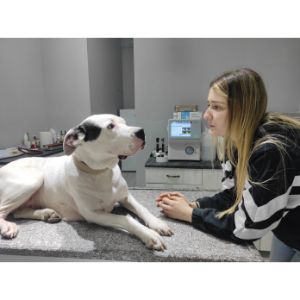
One option for new breeders who need a mentor while getting into breeding is co-ownership.
How to Co-Own a Breeding Dog
The best practice is to sign a highly-detailed contract for every aspect of raising and breeding a co-owned dog. How costs and responsibilities are split between the owners depends on the individual arrangements made by the parties involved.
Like any contract, be sure you understand every clause clearly before signing. If you are uncomfortable with one or more aspects demanded by the breeder, consider finding another partner.
Many breeders desire co-ownership over their best show dogs. These animals represent them as breeders, making it a wise investment to stay involved in the dog’s show career.
Breeding Without Breeding Rights
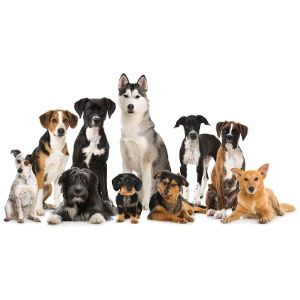
In some cases, you can purchase a puppy under limited registration but won’t be contractually obligated to spay or neuter that dog. You would be breeding without breeding rights, sometimes called breeding without papers.
Breeding a dog who has limited registration carries some consequences. While your dog technically “has papers” because it is registered with the AKC, the puppies are not eligible for registration or to participate in any AKC shows.
The AKC began the limited registration option because it found that breeders were withholding registration papers when a puppy went to a non-breeding home. Sometimes the new owners bred the dogs anyway. When they tried to register the puppies, they found that their dog remained under the original breeder’s name.
This may lead you to wonder what happens if I breed my dog without breeding rights? You cannot register the puppies with the AKC. However, there are other registries where you can register them.
As long as your breeder contract does not have a spay/neuter clause, you are free to breed your dog. As limited registration has risen among AKC breeders, the practice of using alternative clubs has risen in popularity.
If you did sign a contract with a spay/neuter clause, the breeder could sue to reclaim the animal. It depends on the terms of the contract, but it is enforceable in court.
Frequently Asked Questions
Why Do Breeders Charge For Breeding Rights?
Breeders charge for breeding rights because those pups are of higher quality. Moreover, these pups are generally screened, vetted, and taken out of the litter for their exemplary qualities which nets them a higher price.
What Happens If You Break A Breeder Contract?
A breeder can exercise the legal right to reclaim their dog and you might not be able to join the kennel club of your choice. Depending on the nature of the contract, legal action may be taken against you as well.
What Does Limited Breeding Rights Mean?
Limited Breeding Rights means that your dog itself is registered and allowed to participate in shows. However, any of its offspring cannot be registered under any circumstance.
Conclusion For What Happens if You Breed a Dog Without Breeding Rights?

So, can you breed without breeding rights? Yes. You should carefully consider whether to breed your dog when you don’t have breeding rights from the original breeder.
Limiting breeding is a tool that protects healthy bloodlines to produce puppies who do not carry genetic abnormalities or diseases.
You may have a contractual obligation to spay or neuter your dog. Not fulfilling that obligation is risky. If you are not comfortable signing a contract with a spay/neuter clause, consider finding a puppy from a breeder willing to provide full registration or at least not require fixing your dog.
What happens if you breed a dog without breeding rights? You’re not likely to face legal action except in certain circumstances. The puppies will not be eligible for registration with the AKC and some other clubs. There are alternative registries for limited dogs.
You will also like:
- Maltipoo Breeders in Illinois
- Ferret Breeders in the United States
- Cavalier King Charles Breeders in California
For more information about Dog Breeding, check out the video below:
We might think that ‘selective breeding’ refers to the process that gave us Labradoodles, pugs, and other designer dog breeds. However, selective breeding is a practice that goes back thousands of years.
Ever since dogs first started following humans around, scavenging our food, and sleeping near our fires, we have been selecting our favorites and breeding them.
Nowadays, dogs are bred for looks as much as anything. Historically, we bred them for their intelligence or certain behavioral traits. Traits that make them good snugglers, better bird-dogs, or scarier guard dogs make dogs desirable to us.
Unfortunately, the practice of selective breeding comes with some drawbacks. Congenital diseases and undesirable conditions such as brachycephalic syndrome have developed because of inbreeding or purposefully breeding for a genetic deformity, regardless of the dog’s health.
In this article, we will explore the history of selective breeding, how selective breeding affects dog populations, and answer the question, “why would dog breeders select specific dogs to mate?”
Other articles you would like: Best Animal Breeding Associations and Best Dog Breeds For Hog Hunting
Why Would Dog Breeders Select Specific Dogs to Mate?
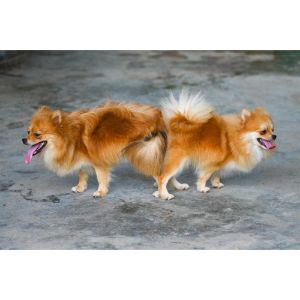
It can be hard to understand why anyone would want to mate two dogs from the same immediate family together. In human mating, this is a huge cultural taboo. Too many dog breeders, it is becoming taboo as well.
Inbreeding is to blame for the development of many of the congenital conditions that plague domestic dogs today. These include hip dysplasia in German shepherds, Addison’s disease in Old English sheepdogs, and ataxia in Jack Russel terriers.
The primary reason these conditions develop is that breeders often choose dogs with similar traits to increase the likelihood that their offspring will inherit them. For example, if two dogs from the same litter display an aptitude for retrieving, a breeder might breed those dogs to increase the likelihood that the puppies will be good retrievers.
This practice is becoming less common as breeders are beginning to understand that hidden genes and alleles in genetically similar dogs can increase the likelihood that the puppies will inherit congenital conditions.
Congenital conditions can develop in mixed-breed dogs. It is not only purebred dogs that can suffer from these diseases. However, introducing new genes into a gene pool decreases the chance that both parents will be a carrier of a particular genetic trait. Therefore, mixed-breed dogs are less likely to have congenital conditions.
It is also worth mentioning that inbreeding and line-breeding do occur naturally. However, in the wild, when these phenomena lead to genetic problems that make the offspring unfit or unable to survive, natural selection quickly eliminates the offspring.
This process of natural selection means that, in the wild, bloodlines that contain congenital conditions are unlikely to develop because unfit members of the species will simply die. Under human care, however, animals that might die in the wild can survive, even thrive, and sometimes breed.
How Did Early Humans Breed Dogs?
The earliest selection of dogs occurred naturally. Dogs were initially attracted to humans because we had warm fires and because we discarded food scraps that they could scavenge. Dogs who chose to remain close to humans benefited from these things and could breed more prolifically. Dogs who did not stay close to us often perished.
Soon, humans began to realize the benefits of our relationship with dogs. Namely, dogs bark when danger comes near, dispose of our food waste for us and assist with hunting. Dogs who were good at these tasks were rewarded with food and shelter, enabling them to breed more successfully.
Dog Breeding as a Hobby
By the time “dog breeding” became a recognized activity in the 19th century, we had already been unconsciously breeding dogs in this way for thousands of years. In the 19th century, people began to keep records of bloodlines and classify dogs into breed groups. Noblemen and women bred dogs for sport, and breeding became a hobby.
How Does Dog Breeding Work Nowadays?
Today, more than 400 dog breeds are recognized worldwide, and we continue to breed dogs for certain desirable traits. Breeding today is informed by genetic research that allows us to carefully select these traits.
Unfortunately, selective breeding has led to many problems for pure-bred dogs in the last hundred years.
Humans have unknowingly bred dogs with genetic markers for disease. We have also knowingly bred dogs from the same bloodlines, and purposefully enhanced certain desirable deformities. This type of selective breeding has led to a proliferation of diseases and genetic problems in many pure breeds.
For example, pugs before selective breeding were less likely to suffer from breathing problems and had much less ‘wrinkly’ faces. It is important to understand, however, that pugs have been pugs since about 400 B.C. Their squashed faces and wrinkles are not a new development.
What Kinds of Traits Are Animal Breeders Looking For?
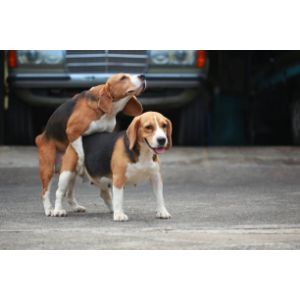
Breeders look for traits that they believe will make a dog desirable. These might be physical or behavioral traits. Breeders who intend to sell their dogs to families as pets will seek out different traits than breeders who intend to use their dogs to herd sheep, hunt birds, or race.
Pets
People who breed family pets look for dogs that are easy to socialize, medium-sized, confident, not prone to aggression or anxiety, and of average intelligence. They also seek out dogs with strong desires to be near humans.
Some dogs, through thousands of years of selective breeding, are more inclined to be with their humans. These include Labradors, Golden retrievers, Pomeranians, German shepherds, and most household pets.
Working Dogs
Other dogs do not make such good companions for the average family. They are bred to do work, so they are genetically predisposed to be more energetic, more intelligent, and require more stimulation to be happy. Some may even require a specific ‘job.’
These dogs include Belgian Malinois, Huskies, Border Collies, Australian Shepherds, Pointers and other bird dogs, and many hounds. Often, these dogs are independent and may not bond with their human in the same way that a family pet may bond. Often, they are highly intelligent or very energetic and do not do well in the average household.
How Has Research in Genetics Changed Pet Breeding?

Until quite recently, breeders bred dogs by a method called the ‘candidate gene’ approach. This involved guessing which genes were responsible for particular traits or diseases, and selecting dogs that were thought to carry those genes.
Breeders and scientists developed hypotheses about what happens when a gene is present and tested those hypotheses via breeding.
This process was usually frustrating and resulted in more misses than hits. It was also expensive and time-consuming. Hypotheses could only be tested by physically breeding dogs and then studying the offspring to determine the results.
The Dog Genome Project
The dog genome project, launched in the early 1990s, was an attempt by scientists to discover and isolate the genes that lead to many of the problems faced by purebred dogs. The project involved mapping the genomes of hundreds of thousands of dogs to build a genomic map to allow scientists to navigate the entire dog genome.
In 2003, scientists mapped a partial sequence of the DNA of a standard poodle. This sequence made up about 80 percent of the complete dog genome. Shortly after, geneticists fully sequenced the boxer genome, filling in the gaps and providing the reference sequence for the dog’s complete DNA.
This research has led to the creation of resources that allow us to manipulate dog DNA. The availability of a fully mapped dog genome has also enabled geneticists to understand which genes are responsible for which traits.
It has also allowed scientists to draw genetic distinctions between breeds. Before this work, we drew breed distinctions based purely on visual and assumed behavioral characteristics.
Pet Breeding Genetics
This work is beginning to proliferate into pet breeding as commercial and private dog breeders are beginning to understand the ramifications of genetic markers in their dogs. Responsible breeders may now order genetic tests for their dogs before breeding them to ensure that the parents do not pass down certain diseases to their offspring.
How Can Random Breeding Affect Overall Animal Health?

Random breeding, or random mating, is mating with no regard for genetic makeup. It is also called panmixia, and it is a near impossibility. This is true for any species, not just dogs.
Random mating assumes that all partners within a species are potential partners, meaning there are no behavioral, cultural, or genetic restrictions on breeding.
For a truly panmictic population to evolve, there would need to be no age limit on breeding, and no cultural boundaries surrounding inbreeding. Additionally, all members of the population would need equal access to all other members (i.e. have no geographical obstacles.)
Random breeding of dogs would mean breeding, for example, a chihuahua puppy with an adult St. Bernard. This can and does happen, however, it is rare, and it is not what most people mean when they say ‘random breeding.’
Assortative Breeding
What most people mean when they say ‘random breeding’ is ‘assortative breeding.’ Assortative breeding involves breeding similar phenotypes. It is what humans do. Assortative breeding involves selecting dogs with complementary genetic structures rather than simply breeding dogs with ‘the best genes.
Assortative breeding can be beneficial to the health of purebred dogs. Often, dogs who have ‘the best’ genes for a particular trait carry hidden genes that can arise in the offspring and cause problems. Historically, this problem was solved by ‘outcrossing’ (introducing the genes of an entirely different breed).
Assortative breeding means that instead of selecting two dogs with dominant alleles for a gene, you choose one dog with a dominant allele and one with a recessive allele. This process will decrease the risk that the dogs share a hidden gene for an undesirable trait.
Who Was the First Person to Breed a Dog?
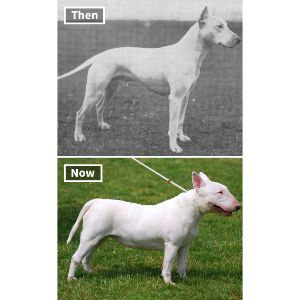
It is impossible to know who the first person was to breed dogs. Some of the earliest evidence for selective breeding has been found in Siberia. The partnership between humans and dogs goes back almost 15,000 years. Throughout this period, humans have, consciously or unconsciously, selected dogs to breed.
Frequently Asked Questions
Do Dog Breeders Force Dogs To Mate?
What Type Of Selection Is Used In Breeding Dogs?
Are Dogs Selective Breeders?
Conclusion For Why Would Dog Breeders Select Specific Dogs to Mate?
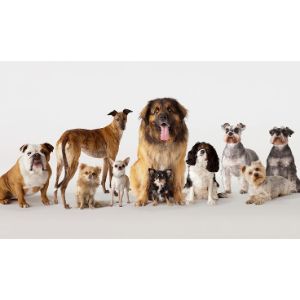
Selective breeding has been happening for tens of thousands of years and has given us the enormous variety of dog breeds we see today. Recently, genetic research has given scientists greater insight into how selective breeding affects dog populations.
When we breed two dogs of a similar genetic structure, the likelihood that the offspring will inherit desirable traits increases. However, the likelihood that undesirable traits (such as congenital diseases) are passed on also increases.
Purebred dogs from bloodlines that have been inbred or bred through line breeding are more likely to carry genes that will pass on congenital conditions to their offspring. The best way to prevent this is to practice assortative breeding or outcrossing to introduce new and complementary genes into the bloodline.
You will also like:
- How To Make Dogs Breed Successfully
- Will a Dog Breed While Bleeding?
- How Old Do Male Dogs Have To Be To Breed?
For more information about Dog Breeding, check out the video below:
Coyotes and dogs are similar animals, and they are both in the Canidae animal family. Dogs breeding with each other produces more dogs, and the same happens when coyotes breed. But, can coyotes breed with dogs, and if so, what happens?
Yes, Coyotes can breed with dogs which creates an animal called a coydog. However, it is not common for coyotes and dogs to breed together because of their breeding seasons, the bonds between the parents, and their low fertility rates. It happens, but coydogs are rarely kept as pets since they are wild.
This article explains how coyotes and dogs can breed, why coydogs are not more common, and whether or not they make a good pet.
Other articles you would like: Why Can’t a Human Breed With Other Animals? and How Often Can You Breed a Dog?
Coyote and Dog Breeding
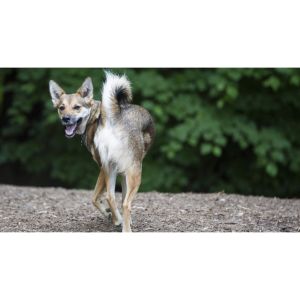
Coyotes and dogs can breed, and their offspring have a good chance of surviving and being born healthy, thanks to the similarities between the two animals.
And, the result is an animal called a coydog, a combination of the two animal names. Scientists sometimes refer to coydogs as eastern coyotes.
Some coydogs are hard to recognize because they look so similar to one of their parent animals. Just because an animal looks like a coyote does not mean they do not have any dog ancestry and vice versa.
Coydogs have some common characteristics that make them easier to identify compared to dogs or coyotes.
Many coydogs have gray fur, as do most coyotes, but they can also be other colors like blond, black, and red, which is less common in coyotes. Their unique coloring comes from the dog. Coydogs also weigh more than coyotes on average and have a more deer-based diet, which is where the excess weight comes from.
Are Coydogs Common?
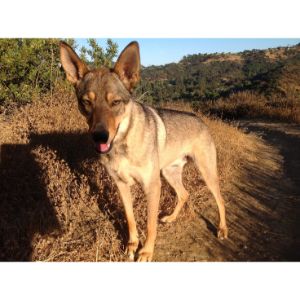
Even though coyotes and dogs can breed, they are not very common. You will not find any domesticated coydogs, but some are in the wild, and some have been raised in captivity for scientists to study.
Scientists can estimate how many coydogs are living in the wild, but it is a rough estimate because they need to perform DNA testing to determine which animals are a mix of dog and coyote; looking at them is not enough to tell.
Coydogs often get mixed up with coywolves, which are a similar hybrid but the coyote breeds with a wolf instead of a dog. The two animals look similar, but most wolves in North America have some coyote DNA in them. But, there are significantly fewer coydogs on the continent.
However, these animals used to be much more common. Starting before the colonization of the Americas by Europeans and lasting into the 20th century, people in Mexico and Canada would purposely breed coyotes and dogs.
In Mexico, they wanted guard dogs, but domestic dogs were not as big and intense, so they wanted some coyotes in them. And, in Canada, they bred coydogs as sled dogs.
Next, we will get into the reasons coydogs are not more common.
Reasons Coydogs are Not More Common
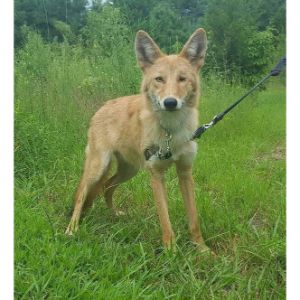
So, coydogs exist but are not as common as they could be. Why is this? There are a few reasons why coydogs are not more common:
- Different Breeding Seasons
- Single Parent Litters
This section details these reasons.
Different Breeding Seasons
First, dogs can breed anytime, but coyotes are seasonal breeders. So, a dog and a coyote would have to meet and breed at a specific time of year for the coyote to be ready to breed together.
Furthermore, coydogs inherit the seasonal breeding trait. Coydogs can mate with dogs or coyotes to produce more of these species. But, their breeding season does not align with the coyotes’ breeding season. So, coyotes and coydogs rarely breed with each other, and dogs and coydogs breeding is just as rare as dogs and coyotes breeding because of the seasonal breeding.
When coydogs do breed, they are most likely to breed within the coydog family since their mating cycles line up.
Since coydogs are rare, to begin with, it is difficult for coydogs to reproduce together enough to create a significant population of them. And coydogs are a hybrid species which oftentimes means they are not as good at breeding as pure animals. Their fertility is often lower, which leads to an even smaller chance of the coydog population becoming more prevalent.
So for coydogs to be more common as a species, dogs, and coyotes would need to breed much more than they already do. But, for all the reasons we explain in this section, they do not breed all that often, even though it is possible.
Single Parent Litters
Another reason why coydogs are not common is that the coydog dad does not stick around to help the mom of the other species raise the litter. The mom is left alone to care for her coydog pups, and they have a lower chance of survival.
Coyotes and dogs will only stay together long enough to get pregnant, then they go their separate ways, but when dogs or coyotes breed with their own species, the mom and dad bond and both are there to keep their pups safe after they are born.
Are Coydogs Good Pets?
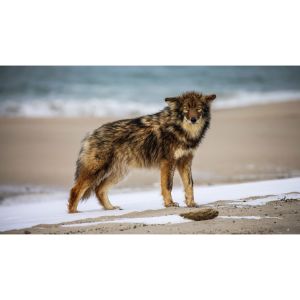
You can keep coydogs as a pet, but it is quite uncommon, and if you want a coydog pet, you need to be an experienced dog owner. As detailed in this section, there are many things to consider if you want to domesticate a coydog.
Temperament
Coydogs do not make good domestic pets like other dogs since they are partially wild animals. With the coyote in them, they are quite temperamental and require a lot of attention and patience. They tend to get very attached and protective of their owner, resulting in violent behavior against others.
The coydog needs to be trained from a very young age if you want to have an easier time keeping them as a domestic animal.
Exercise
One of the best ways to make sure they stay happy and safe is to make sure they get a lot of exercise. Coydogs need a lot of space to run around and a lot of time to do it. Just like dogs, they want you to play with them, and the exercise needs to be daily, just like a coyote would have in the wild.
Health Concerns
Coydogs also might face some health issues, and they have a wide life expectancy ranging from 5 to 15 years. Some common health issues in coydogs include arthritis, hip dysplasia, and elbow dysplasia. Their life expectancy depends on whether or not these health conditions affect them and how well taken care of they are, including their diet, exercise, and affection.
You also need to find a vet who is familiar with coydogs and their health when you take one for checkups and shots.
Coydog vs. Dog Characteristics
Furthermore, coydogs have some characteristics that dogs do not, and owning them may be difficult. First, coydogs need a lot of space to themselves, like a den they would have in the wilderness. It needs to be their own space, and they should not share it with other pets.
Size
And, since coydogs are bigger than most dogs, they need their den to be spacious. Their size also means they require more space in general and a lot more food. So, owning a coydog might be more expensive than owning other types of dogs.
Energy Levels
Coydogs are also very social, and when they want attention, you need to give it to them. If coydogs want to lay down with you or play a game, you better be willing to do so. Otherwise, they will be offended, and their hot temper may show. However, they tend not to like to be pets as much as dogs, but they do like to cuddle.
Furthermore, when coydogs do want to play, they might want to do more than just play fetch. They are smart animals, so you may want to find toys and games that will challenge them. Unfortunately, their intelligence also means they are pretty quick to learn how to open doors and get into things in your home that they are not supposed to.
Noise
Coydogs are noisy like coyotes. Sometimes they bark similarly to how dogs do, but they make a lot more noise and different noises too.
They can howl, and at times it may be high-pitched, which can be very annoying, and even startling the first time you hear it. A coydog will likely break all noise regulations if you have close neighbors or roommates, especially in an apartment building.
Frequently Asked Questions
Can Coyote Breed With A Dog?
Yes, a coyote can breed with a dog. They do produce hybrid litters and they are referred to as coydogs. However, they’re quite uncommon as coyotes and dogs have erratic breeding patterns.
What Happens When A Coyote Mates With A Dog?
When a coyote mates with a dog, they produce a hybrid called a coydog. This isn’t very common since coyotes have a specific breeding season while dogs do not. Plus, dogs typically do not exist in the wild.
Can A Wolf Mate With A Dog?
Yes, a wolf and a dog can mate with each other. The offspring is known as Wolfdog and generally is known for its wild behavior as compared to domesticated dogs.
Conclusion For Can Coyotes Breed With Dogs?
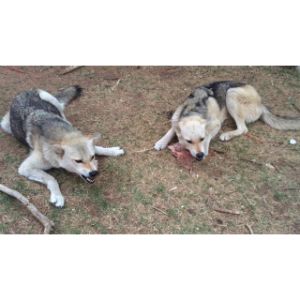
So, can coyotes breed with dogs? Even though it is rare, it is possible, and the new animal is called a coydog. Coydogs are not a common species since they have low fertility, and coyotes do not breed with dogs enough to make a significant population.
Occasionally coydogs are kept as pets, but this is not ideal for most people since they can have a temper and need a lot of attention to play and exercise.
You will also like:
- How Old Do Male Dogs Have To Be To Breed?
- How To Make Dogs Breed Successfully
- Will a Dog Breed While Bleeding?
For more information about Coyote Breeding, check out the video below:
We often assume that animals only have sex to reproduce. But do animals orgasm when mating? Is sex just an instinctual response, or are animals able to enjoy pleasure when mating? If animals can feel pleasure, do they orgasm when they mate?
Yes, animals are generally reported to orgasm when mating. While this may differ depending on their species, intercourse is typically a pleasurable experience for all parties involved which is indicative of them eventually orgasming as well.
Other articles you would like: Why Can’t a Human Breed With Other Animals? and How Old Do Male Dogs Have To Be To Breed?
Do Animals Orgasm When Breeding?
We can assume that males orgasm when breeding since they ejaculate. There can be no fertilization without ejaculation, after all. It’s harder to determine if females in a given species orgasm, especially if no obvious signs indicate yes.
Females in a given species masturbate as frequently as their male counterparts and are just as likely to participate in recreational sex. Regarding pleasure, all signs point to females experiencing it just as much as males.
Orgasms are hard to measure across animal species, especially if we use human orgasms as a baseline. However, we shouldn’t assume that the experience is the same for every animal species that mates.
Body Language

We can never really know what an animal’s emotional state is like, but we can gauge their emotions in other ways. Ultimately, the question about orgasms boils down to body language and facial expressions. For example, certain animals, like primates and rats make facial expressions that are easier to read. Other animals, like birds and lizards, are harder to read in that department.
Based on facial expressions, muscle contractions, and vocal changes, researchers are sure that animals experience some sexual release while mating. This behavior mostly correlates to primates, but other animals react similarly while mating.
Most notably, Japanese macaques perform familiar interactions while mating with a male. A significant number of observed females would turn their heads back to look at their partners before grasping onto the male. We can’t say for sure what each female’s feelings were in those interactions, but we can say that this behavior is very similar to those of human women during the climax.
Obvious Enjoyment

An orgasm indicates that an animal is enjoying itself while mating. But can we determine if animals feel pleasure when mating in other ways? You might be familiar with male tortoises that moan when they mate. And while moaning doesn’t translate to each species in the animal kingdom, many other species display pleasure while they mate.
Most notably, the Gulf Corvina has the world’s loudest fish orgies. The fish’s mating call is loud in and of itself, but the noise is deafening when a population gathers to mate.
Frogs, by comparison, croak when they enter their mating season and can cause a stir in your backyard or garden. Although their croaks are widely recognized as a mating call, frogs will croak while they mate.
For the most part, not many animal species moan while mating. But that doesn’t mean those species don’t feel pleasure during sex. So how else can we tell that animals experience pleasure while they mate?
Do Animals Masturbate?

Yes, animals across species do masturbate. We can’t exactly ask animals whether they feel pleasure when they mate or not, but we can study their behaviors and patterns. For example, moaning isn’t observed in many species, but researchers noticed how frequently certain species masturbate.
The easiest form of sexual stimulation outside of reproduction is masturbation. You may think that animals like apes and chimpanzees masturbate more regularly than other animals.
But because these species are closely related to humans, that doesn’t mean other species don’t practice masturbation. For example, mammals across species have been recorded practicing masturbation, from dolphins to bulls.
Animals like primates have fingers that make masturbation easy to manage. It may surprise you that animals like dolphins and bulls masturbate just as frequently as other mammals. Across all sorts of species, animals are inventive in finding ways to stimulate themselves. Males and females have been observed using stones, roots, leaves, and wood as tools to help them with masturbation.
It bears mentioning that these behaviors are mainly observed among mammals and don’t speak for other animals outside this category. And it’s also important to know that male ejaculation isn’t noted in many of these observations. Most instances where animals have been recorded masturbating indicate that the animal is seeking out stimulation rather than release.
This indicates that animals experience pleasure both during mating and outside. What if these animals only stimulate themselves because they don’t have a partner? Are there any other indicators that prove that animals feel pleasure?
Do Animals Indulge in Recreational Sex?

We often assume that humans are the only species that have sex for non-reproductive reasons. But if animals can feel pleasure while they mate, do they pursue non-reproductive sex as well? Yes, animals do indulge in recreational sex. In fact, it is widely observed across the animal kingdom, from bonobos to hyenas.
Genital-Genital Rubbing
Whether between heterosexual or homosexual partners, researchers have noticed that animals will rub their genitals against each other. This is the most typical sexual pattern for the bonobo, which makes this their most common type of sexual activity outside of mating.
Outside of the bonobo, other primates have been observed performing genital-genital rubbing. Researchers believe that other vertebrates like hyenas and rats will rub their genitals outside of the mating season for several reasons. This can be for pleasure or stronger social bonds between pairs and communities.
Interspecies Mating
Strangely enough, some animals will mate with other animals of a different species if the opportunity arises. This has been recorded both within and outside of mating season. Most interspecies sexual activity happens between closely related species.
This doesn’t necessarily mean that different species won’t engage in interspecies mating. Researchers have seen a macaque mate with a deer and a seal mate with a penguin.
Oral Sex
Oral sex has been documented in several species, including bats, brown bears, goats, primates, and wolves. Both females and males will participate in oral sex more often than same-sex partners. However, either gender has been observed to perform oral sex before and after mating
During mating season, oral sex might help fertilization. But outside of the mating season, oral sex is most likely a pleasurable experience that strengthens social bonds between the participating animals.
Sex Outside of Mating Season
Most interestingly, certain animals will mate outside their typical mating season. We might never know whether this activity is to seek pleasure or not. Animals like bonobos and hyenas have been seen flirting and mating with others of their species outside their mating season.
Bonobos especially engage in non-reproductive sex, and most of their sexual activity doesn’t correlate to females’ ovulation cycles.
Homosexuality in Animals
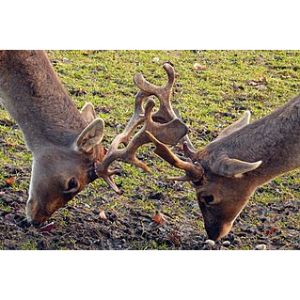
You might not think so, but homosexuality in the animal kingdom is incredibly common. This will range across many species, from mammals to crustaceans, all the way down to worms. The most well-known example is the dwarf chimpanzee, one of humanity’s closest relations.
In the dwarf chimpanzee’s case, sexual activities take focus away from violence. It diffuses a situation, and community members will assist one another if they engage in sexual activities. Dwarf chimpanzees use sex to develop strong social bonds, and the same can be said for other species.
Animals with a complex herd life are most commonly homosexual. Female apes rub abdomens against each other when their sexual organs swell up. Birds like geese and ducks will form homosexual couples and raise young ones together. Male lions will frequently band together to lead a pride and strengthen their bonds by having sex with one another.
More than 1,500 animal species have demonstrated homosexual behavior, pointing to many animals that have sex outside of mating. So, with everything else we’ve described, it is evident that animals feel pleasure when mating or performing sexual activities.
Frequently Asked Questions
What Animals Feel Pleasure When They Mate?
Animals like pigs, bonobos, and dolphins are some of the species that are reported to feel pleasure when they mate. However, a lot of other species also feel pleasure when they breed.
Do Dogs Feel Pleasure When Mating?
Yes, dogs do feel pleasure when meeting. However, unlike humans, their need for intercourse is more biological than anything else. Because of this, they only engage in the act when the female is in heat.
Do Dolphins Feel Pleasure When They Mate?
Yes, dolphins do feel pleasure when they mate. Research indicates that female dolphins have large clitorises, and dolphins have been observed touching each other’s genitalia which means that mating for them is a pleasurable act.
Conclusion For Do Animals Orgasm When Mating?
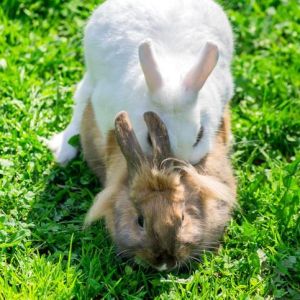
Sex is a strange thing to seek since mating leaves many vulnerable animals. Reproduction is a driving factor for animals to mate, but survival is a big deal in the animal kingdom. Mating can make a pair of easy targets for upwards of an hour, depending on the species and their mating practices. So there must be some other driving force for animals to pursue sex.
Pleasure is a difficult word to define outside of the human experience. Given the many behaviors that animals display and practice, we can safely assume that animals feel pleasure while mating. When it comes to orgasms, that question is harder to answer. But when we look at the evidence, we can safely say that the animals can experience orgasms while mating.
For more guides similar to this article about do Animal Orgasm while mating, you can check out:
- How To Make Dogs Breed Successfully!
- Will a Dog Breed While Bleeding?
- How Often Can You Breed a Dog?
For more information about Do Animals Orgasm When Mating, you can learn more by watching “Do Animals Have Sex for Pleasure?” down below: